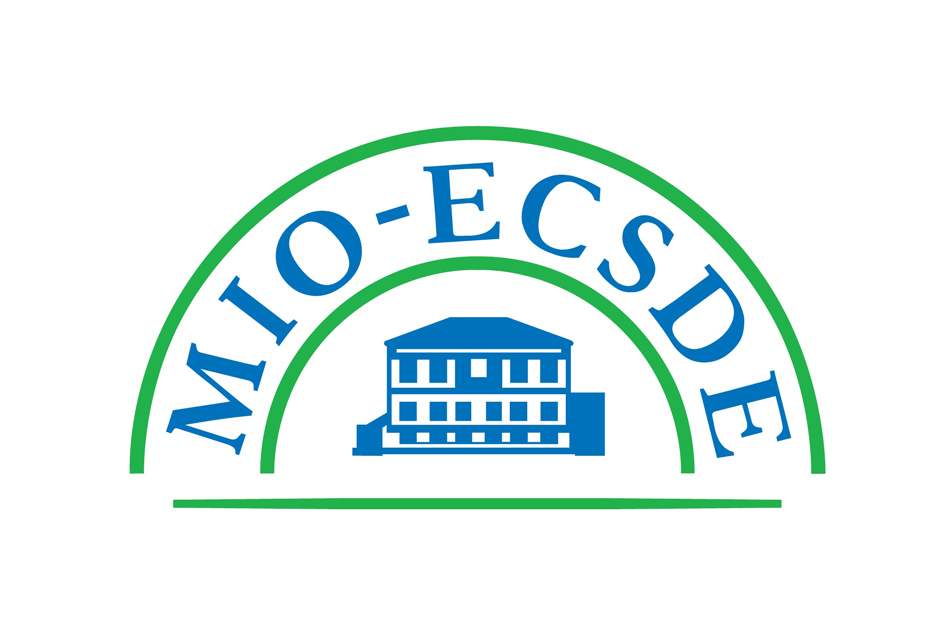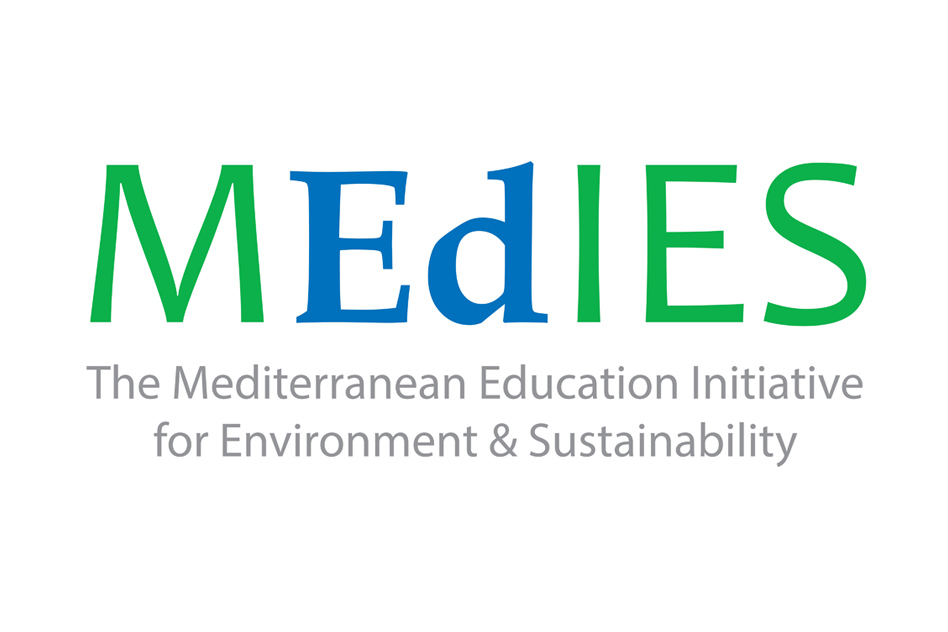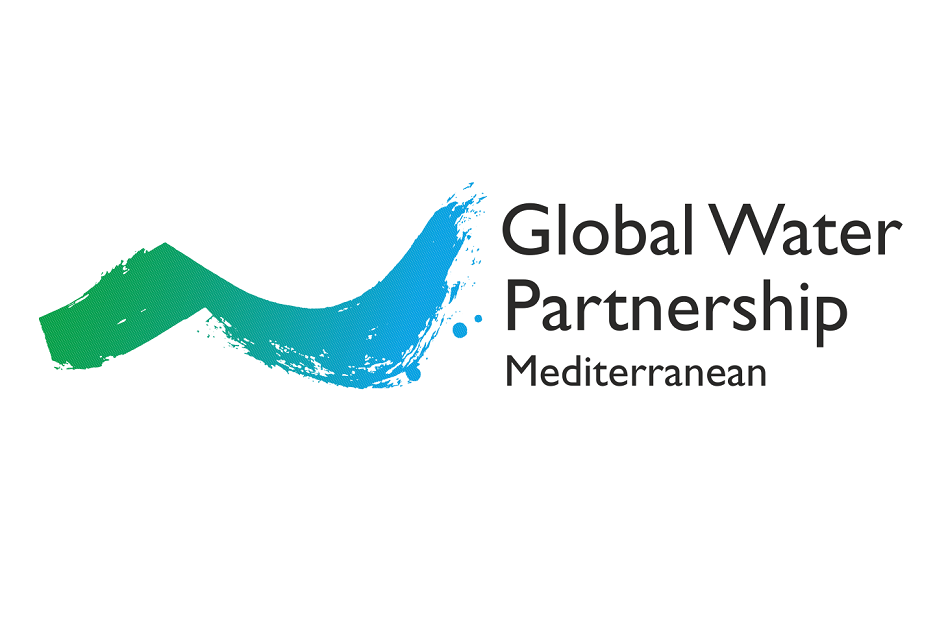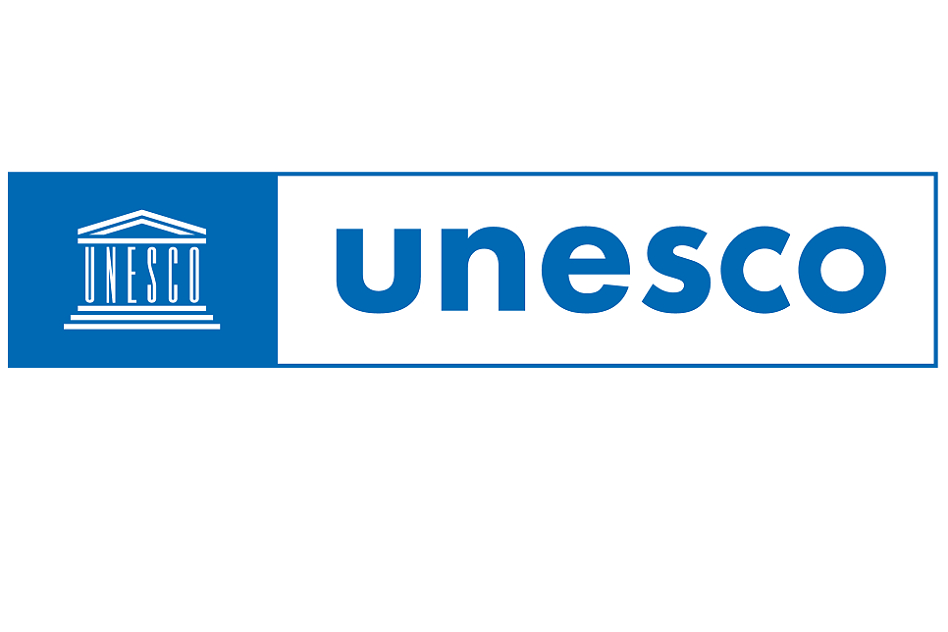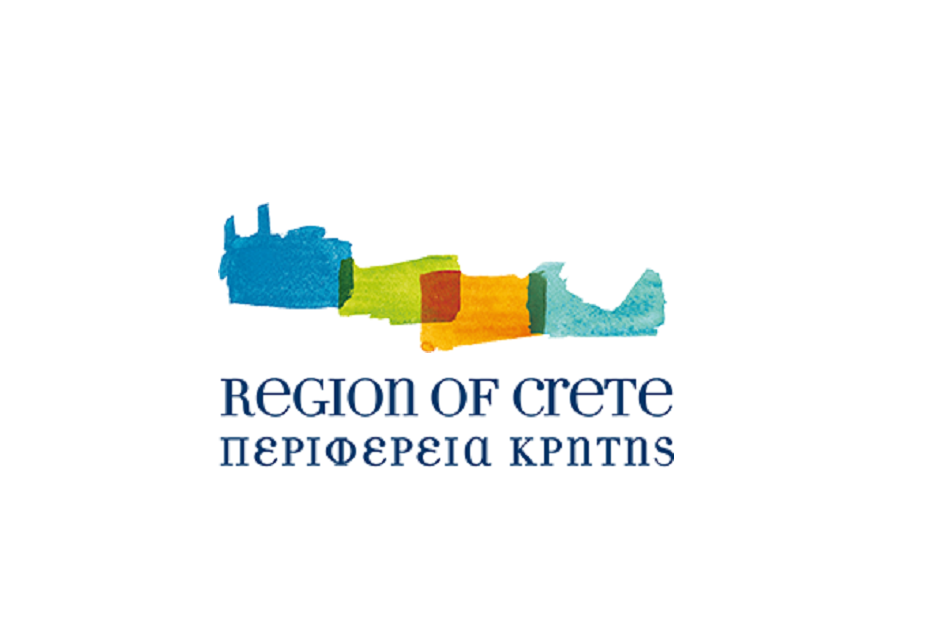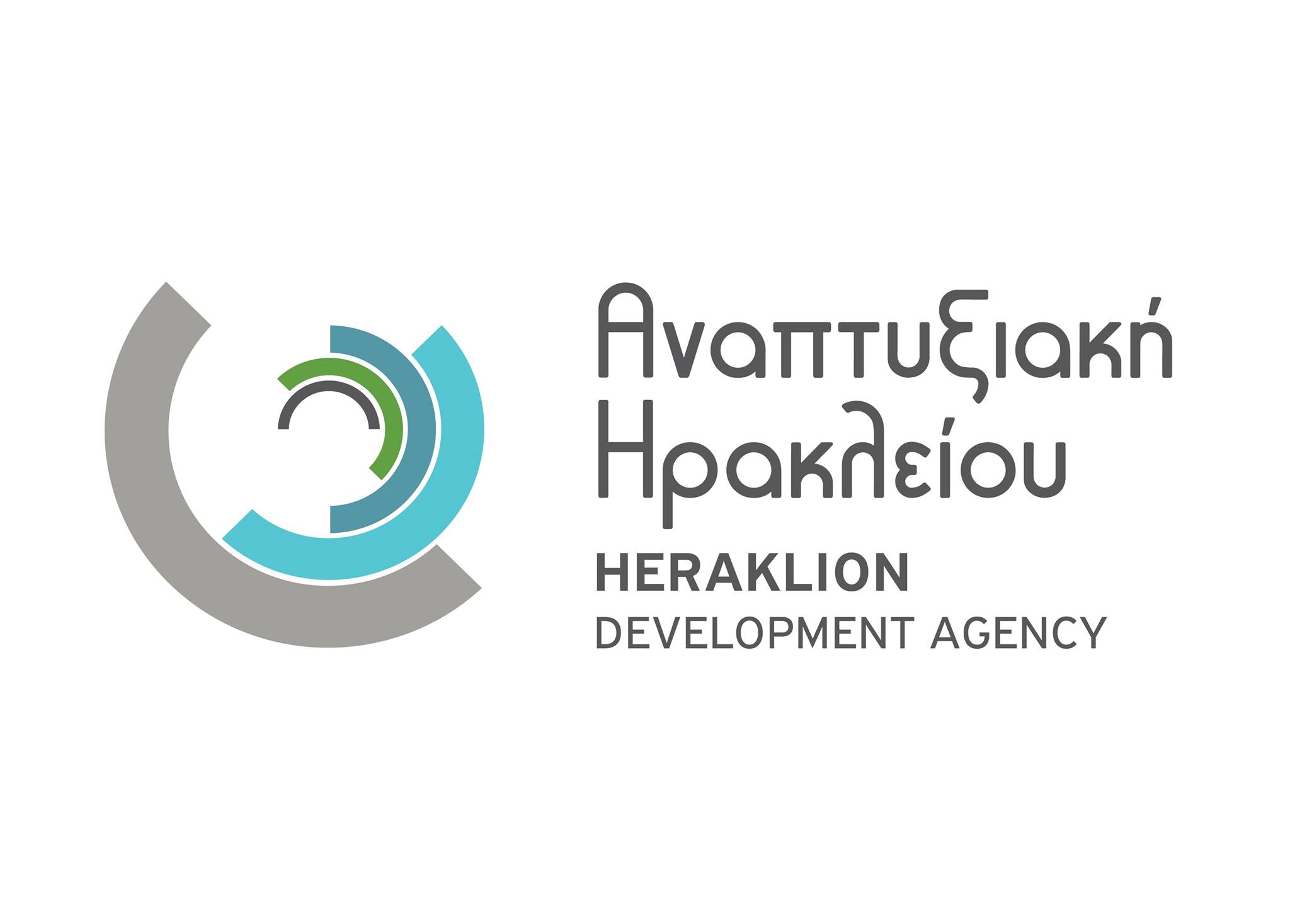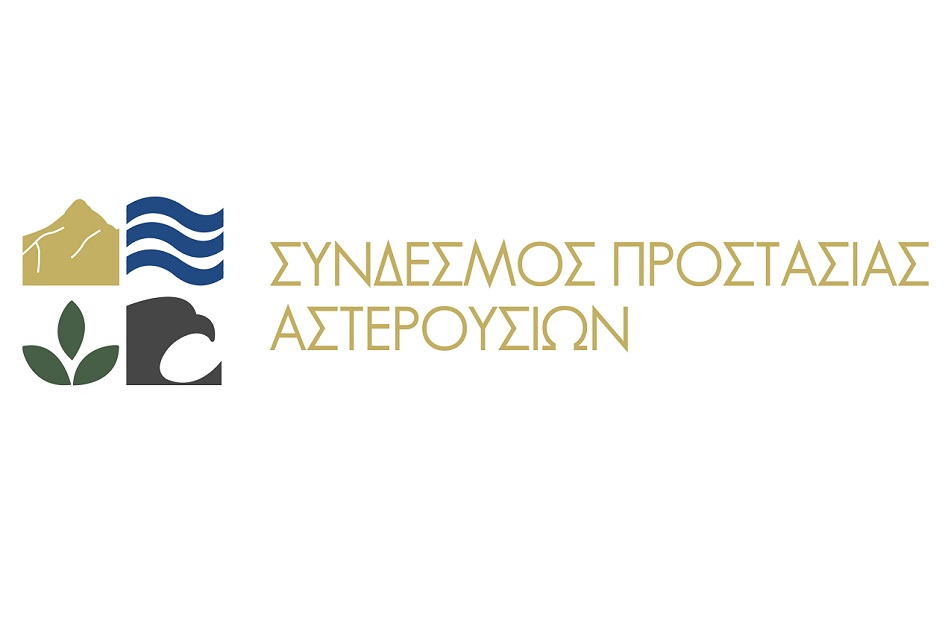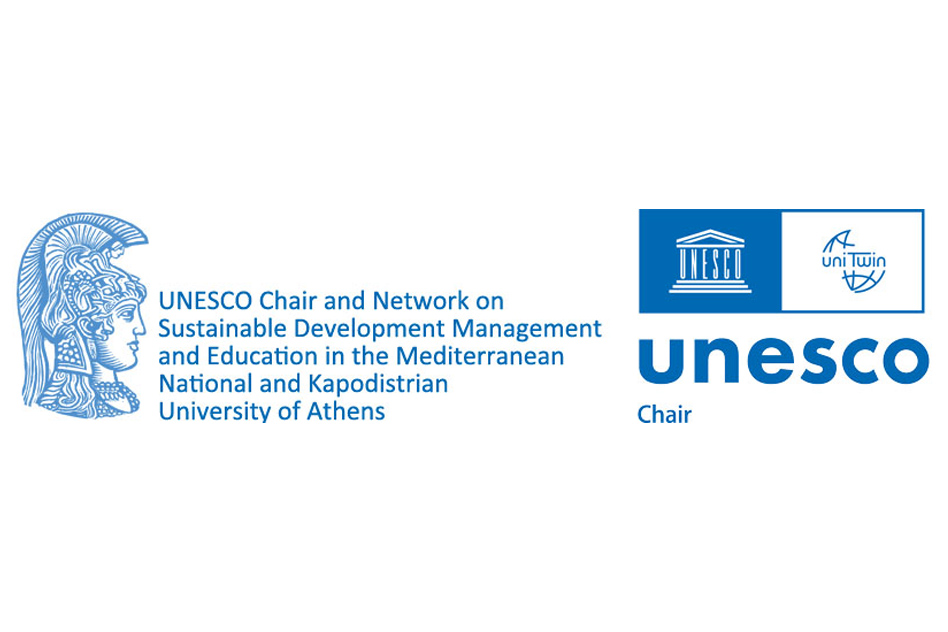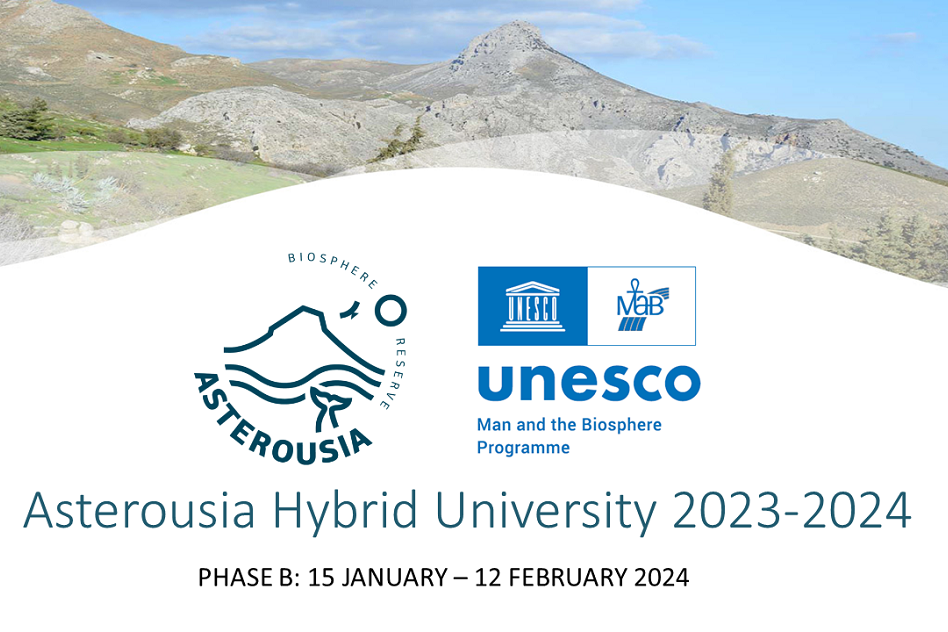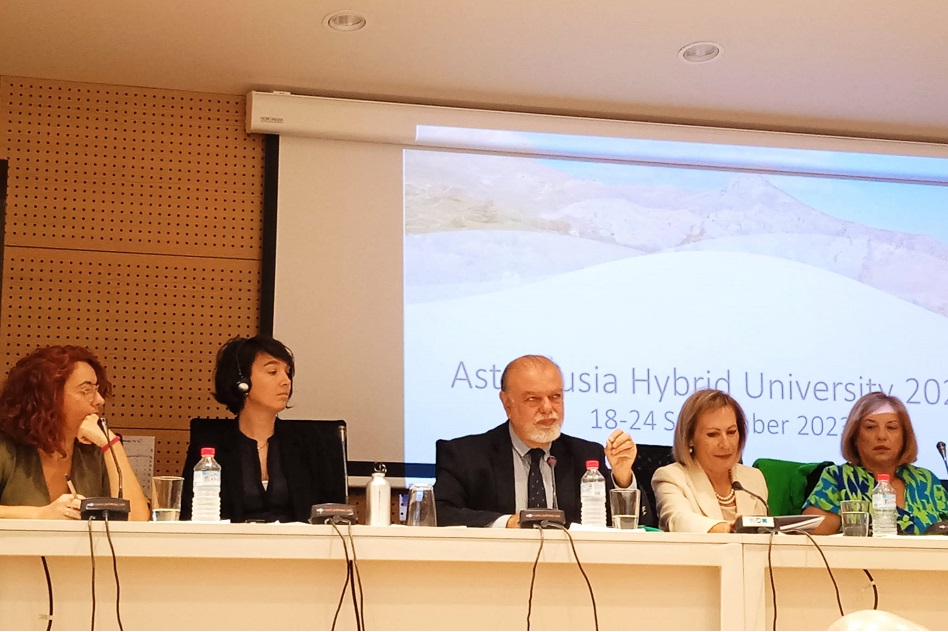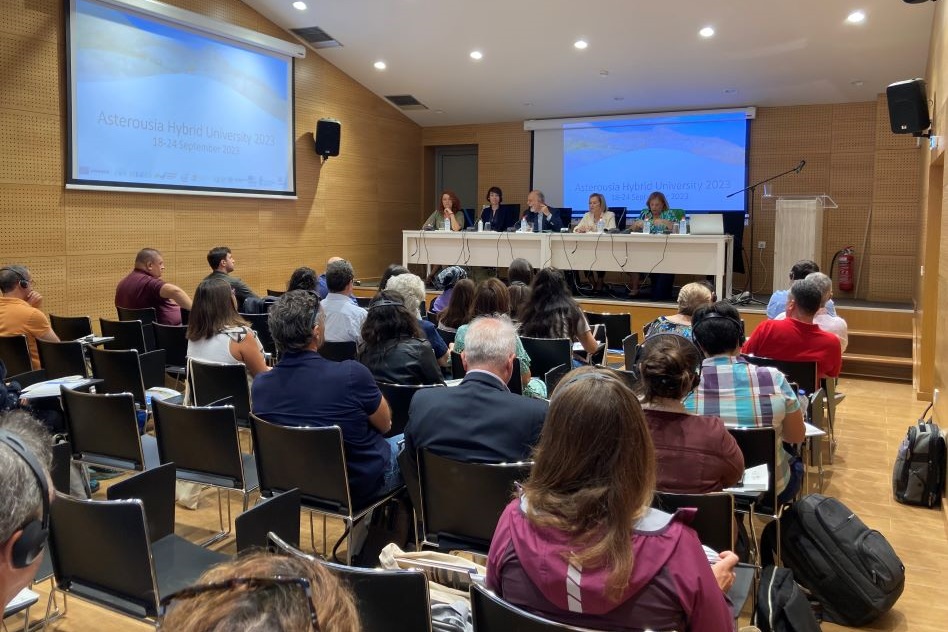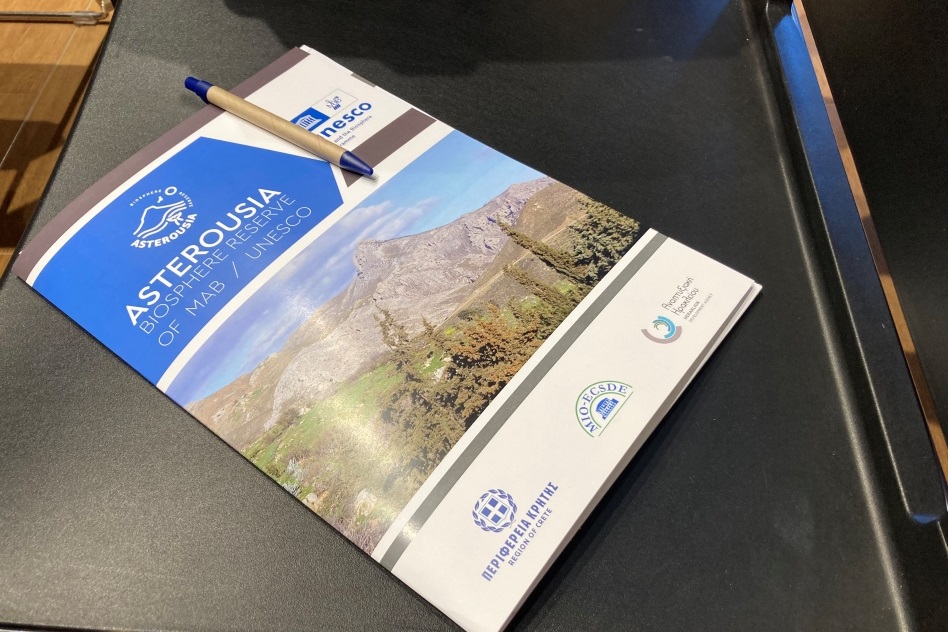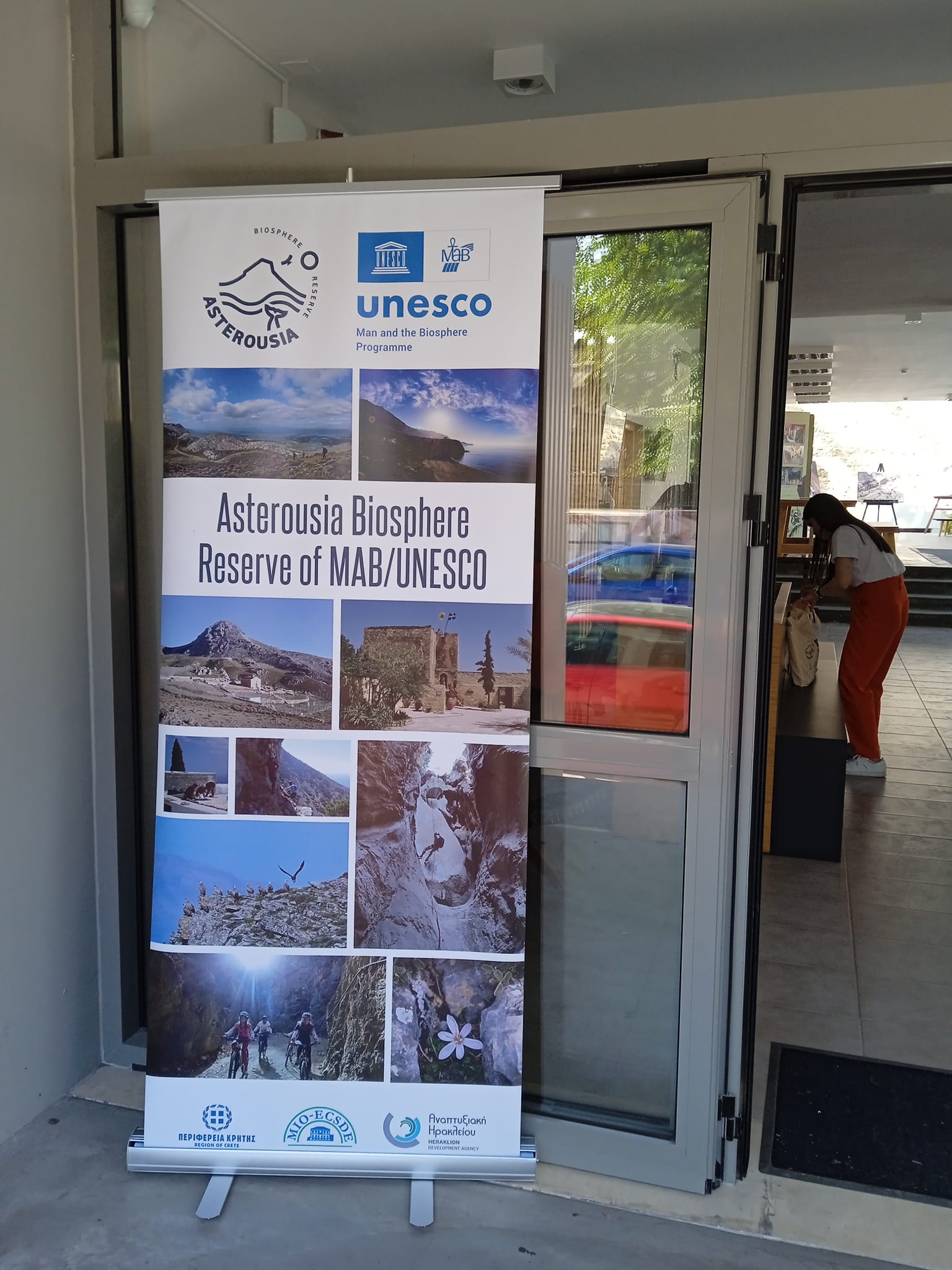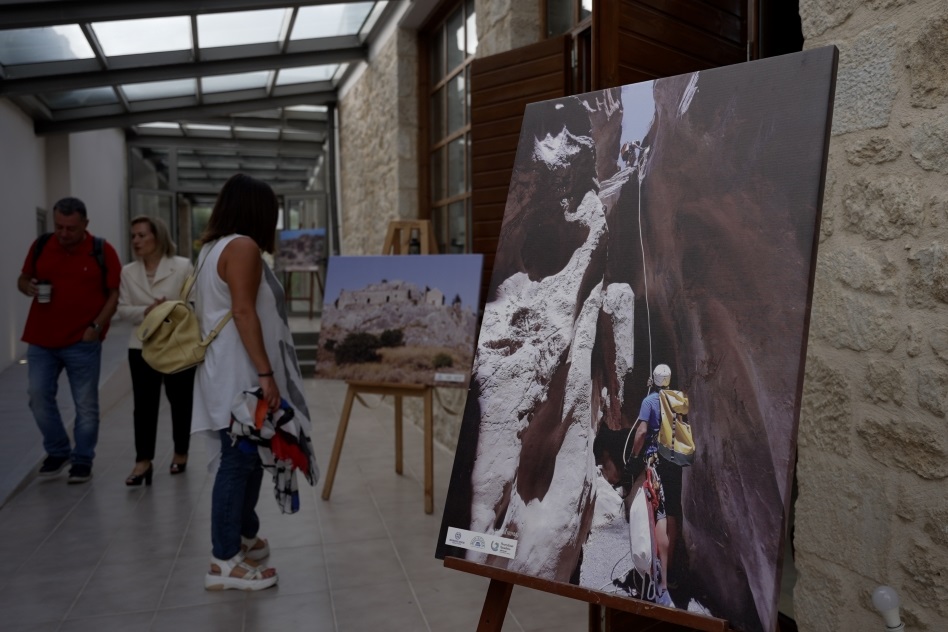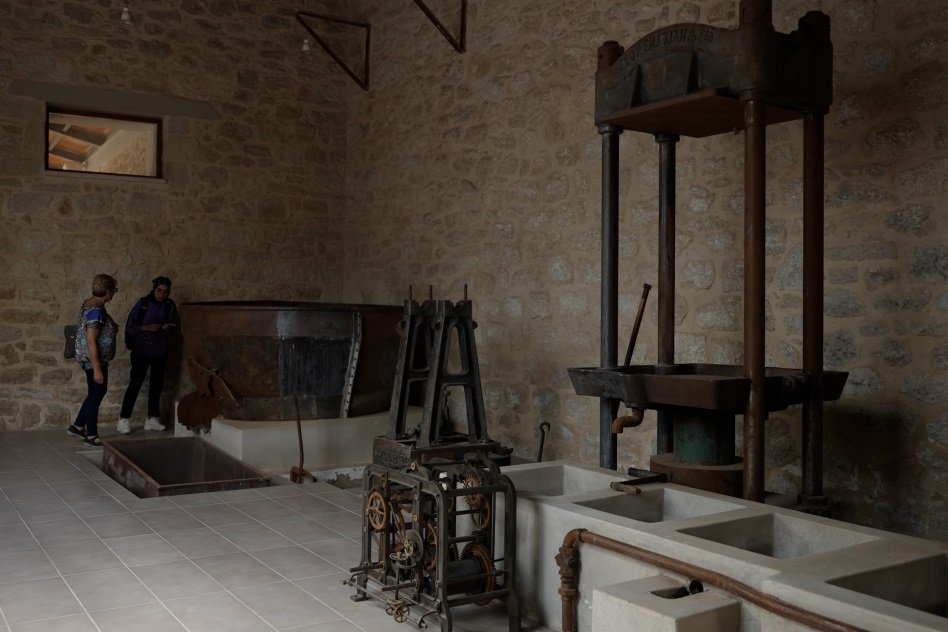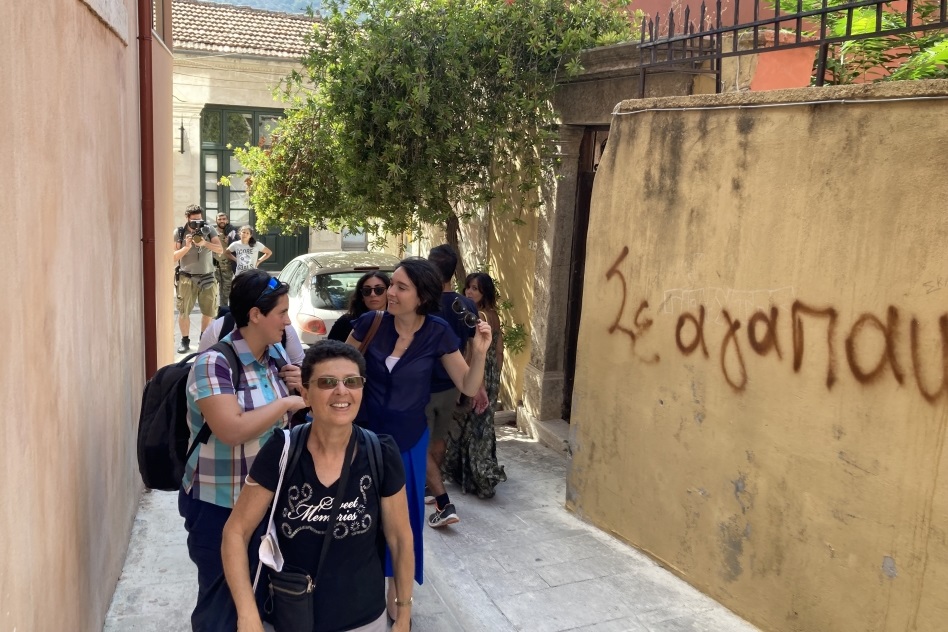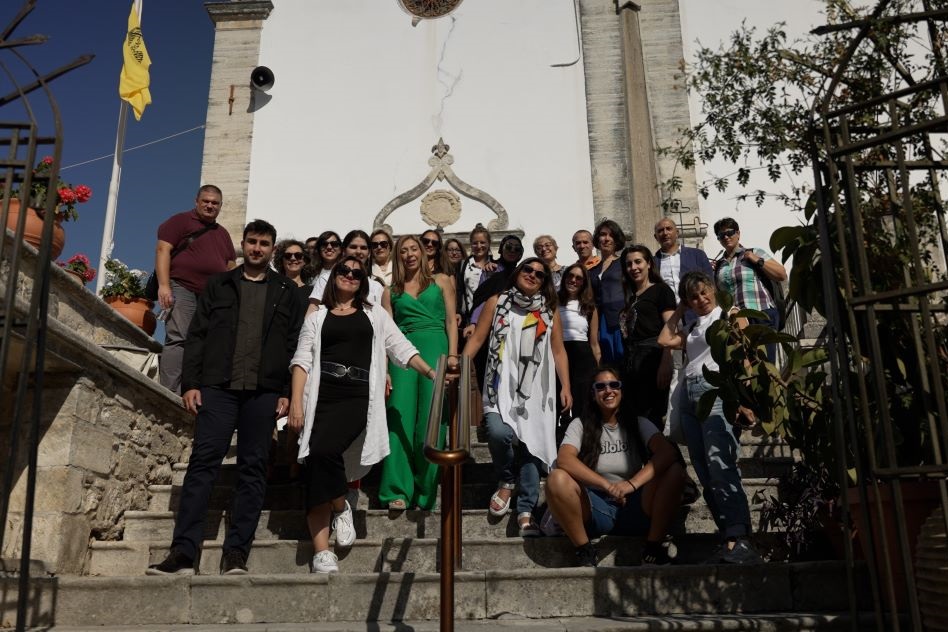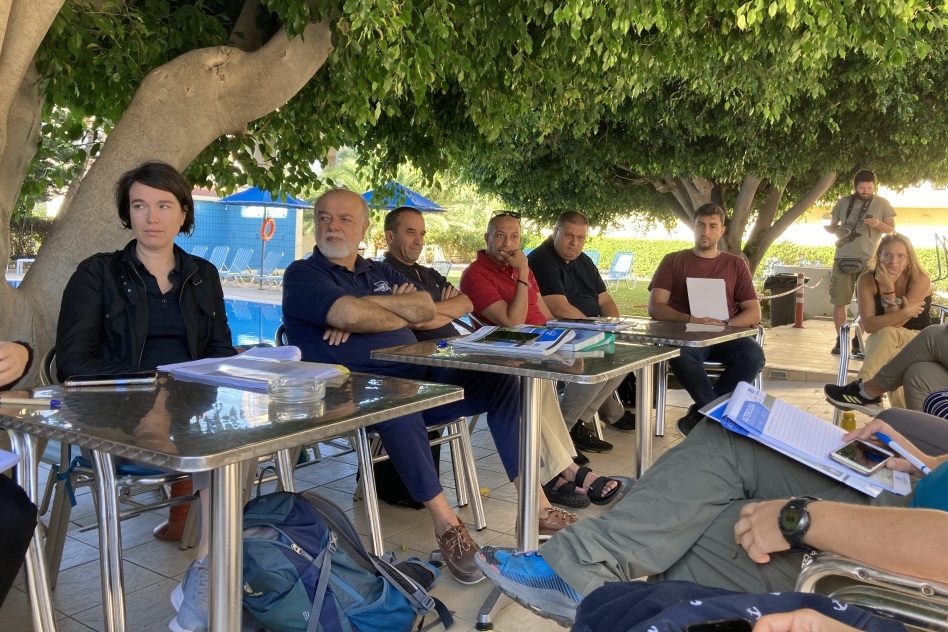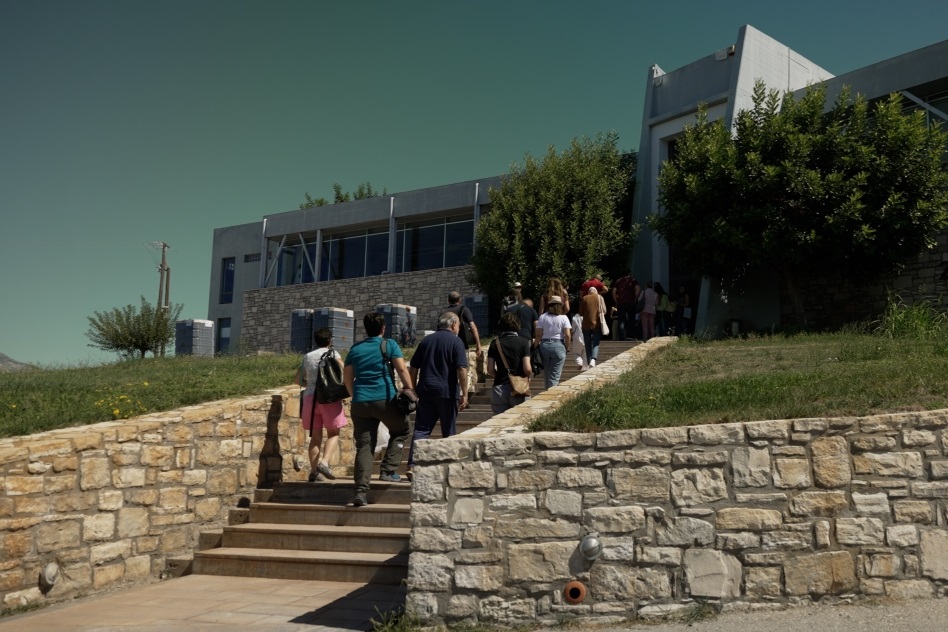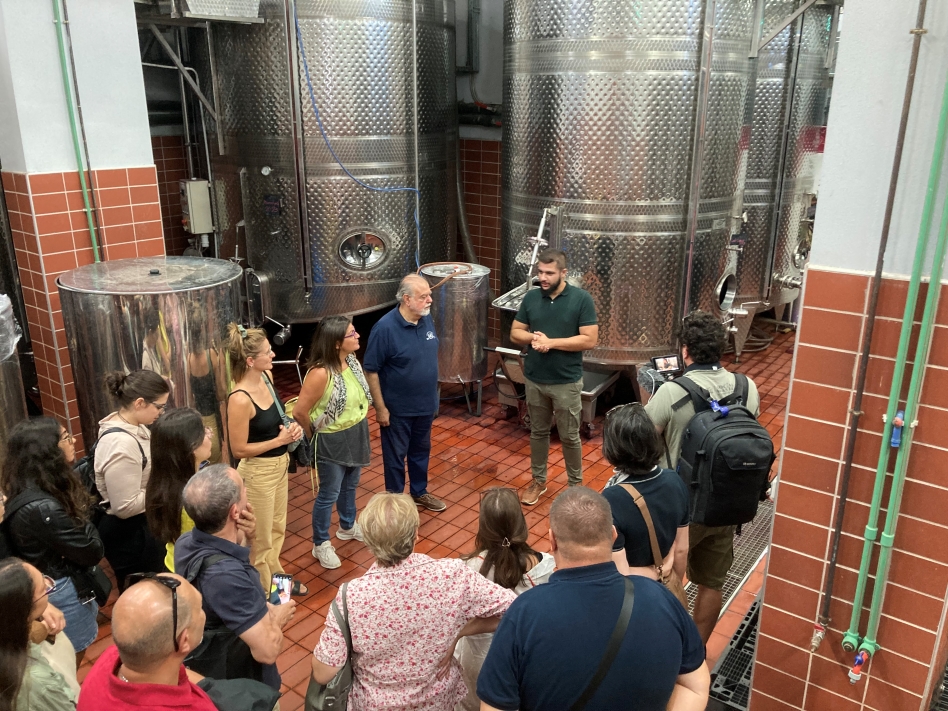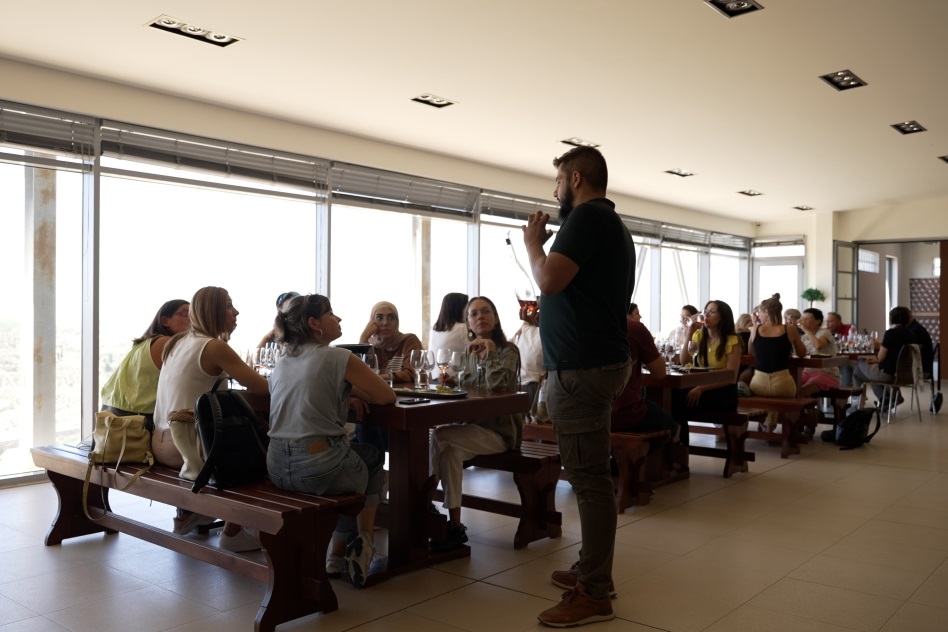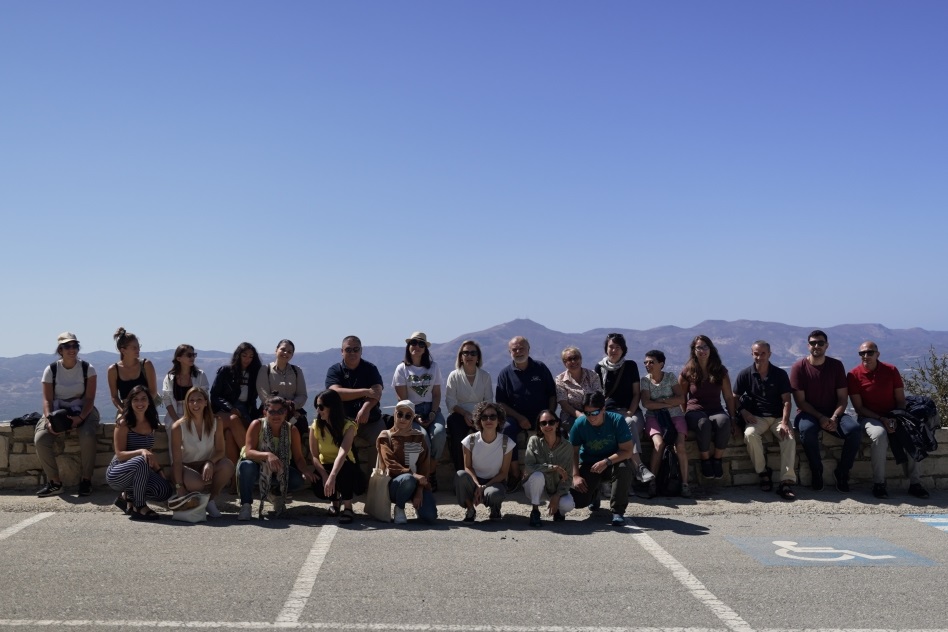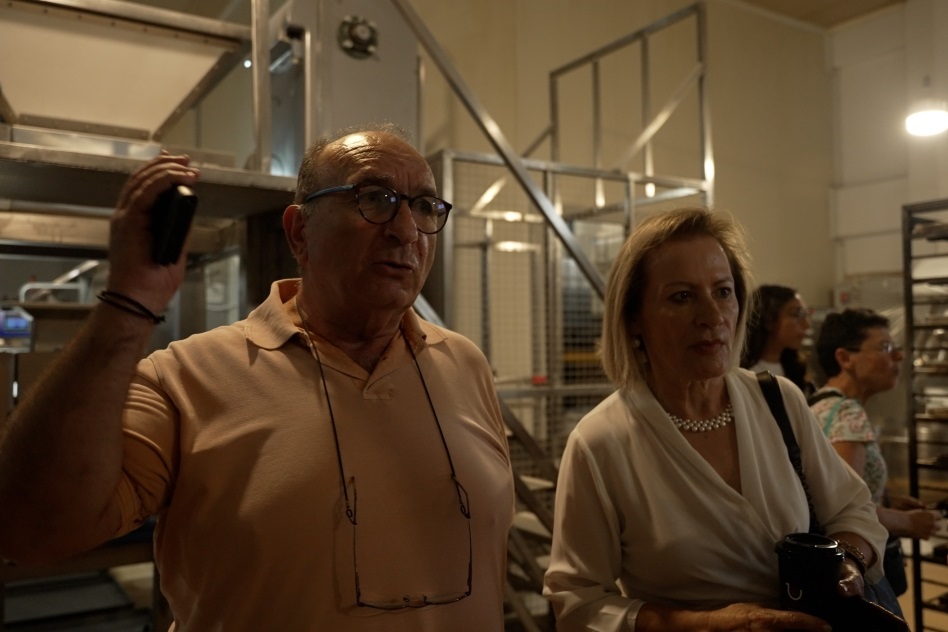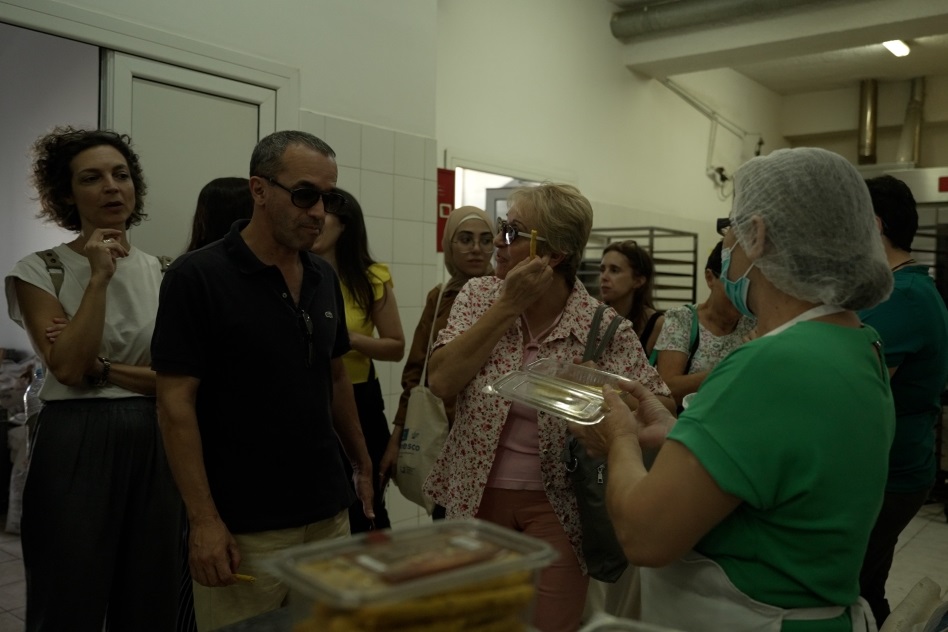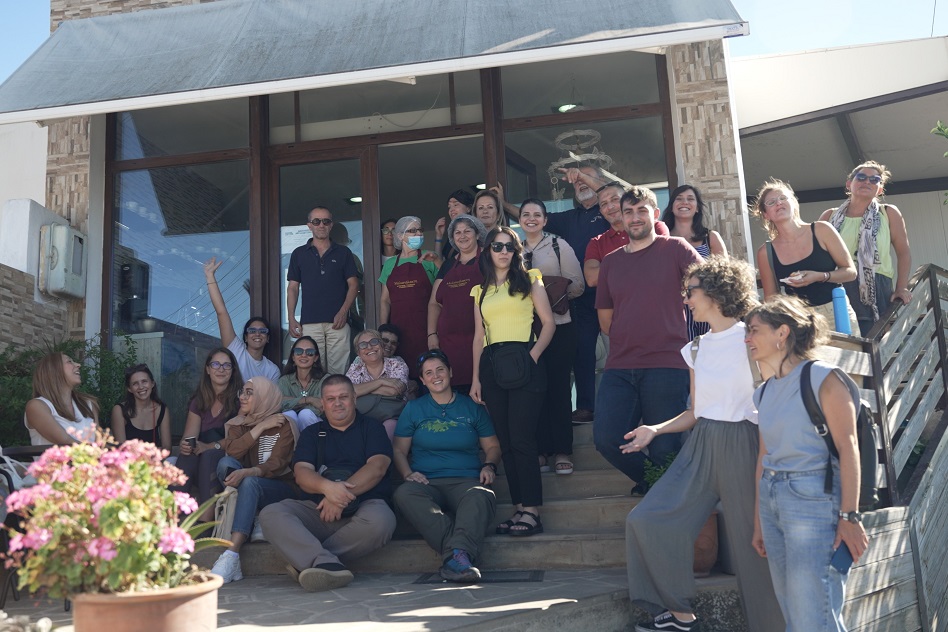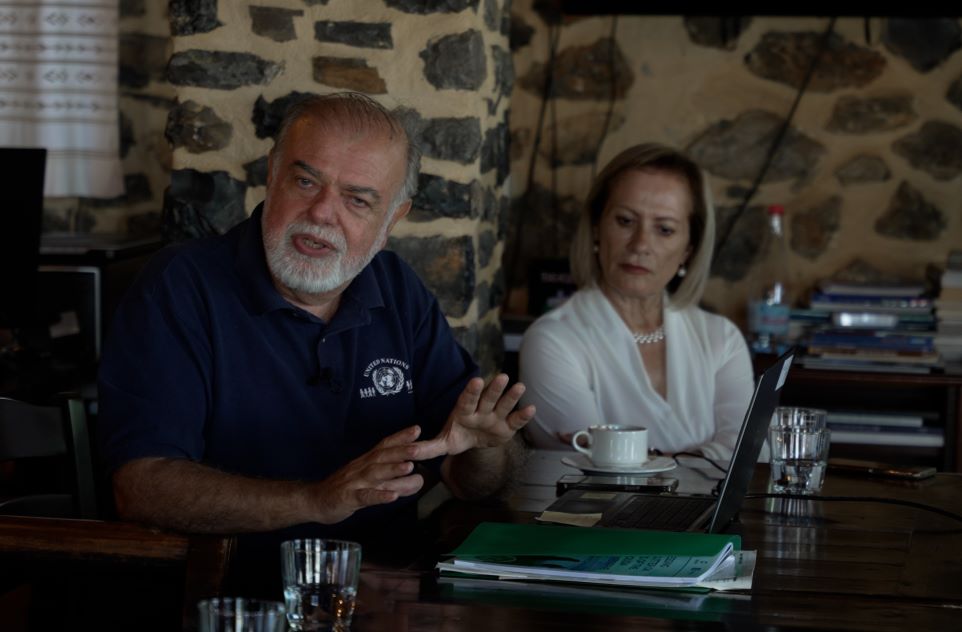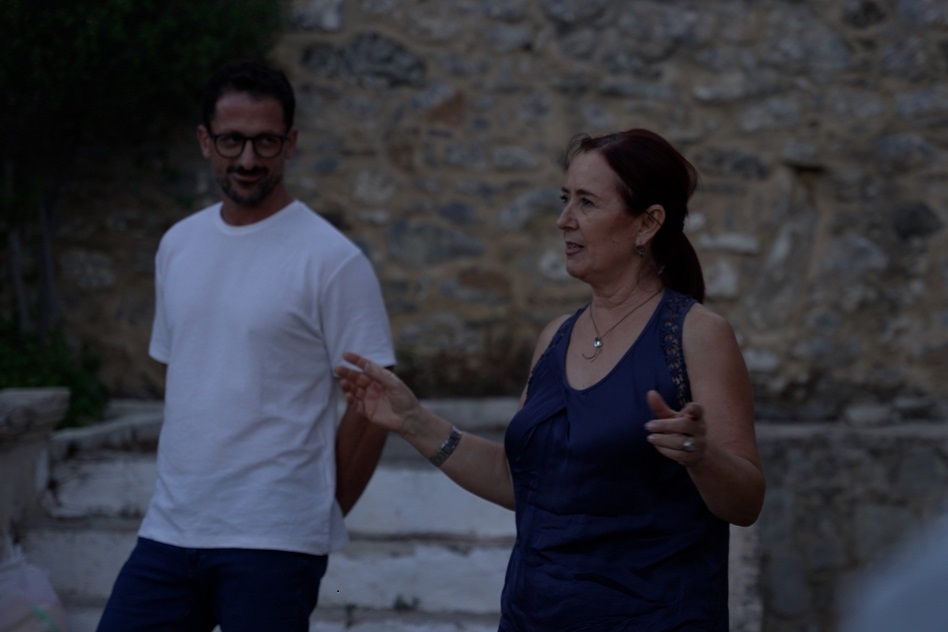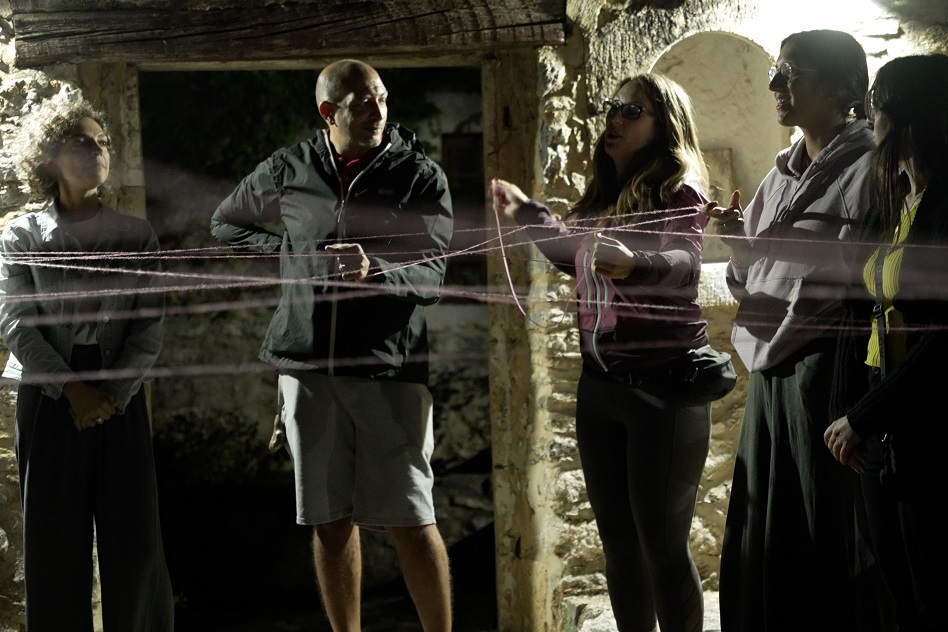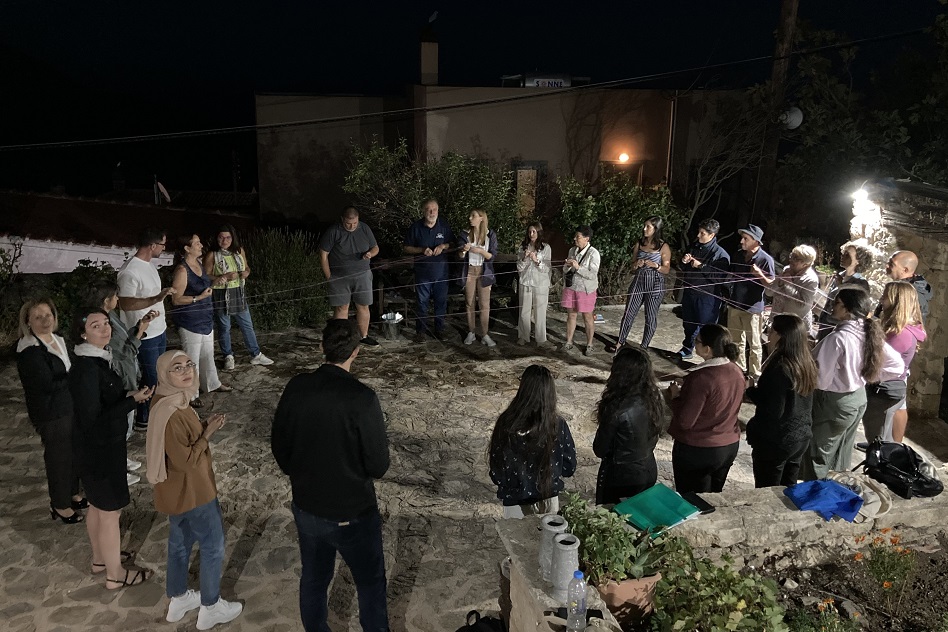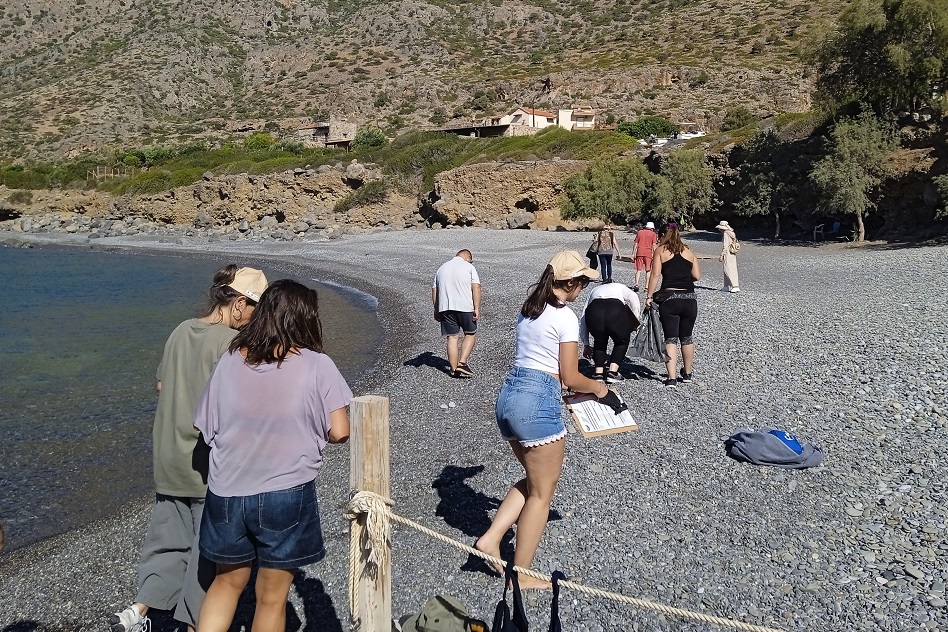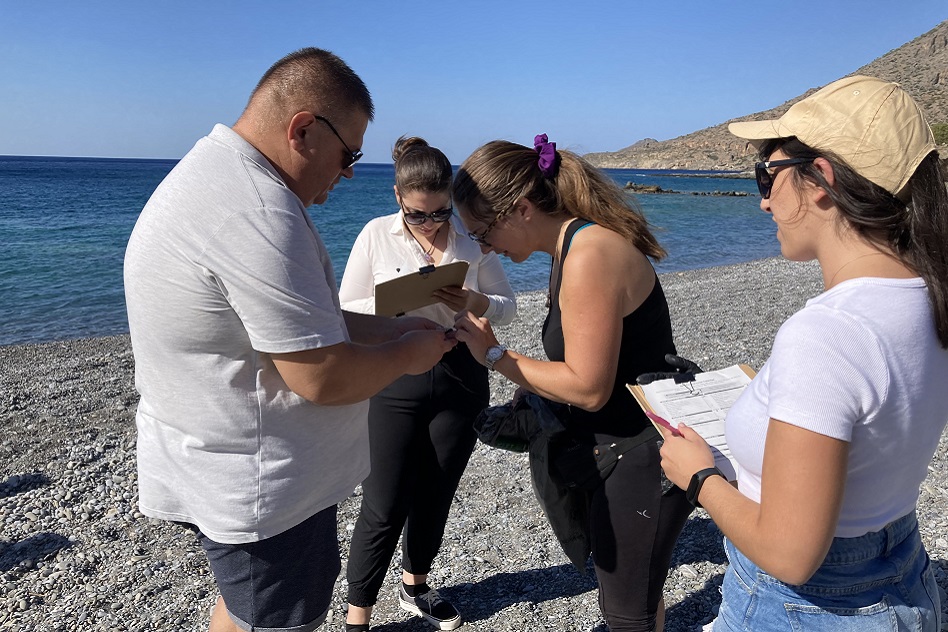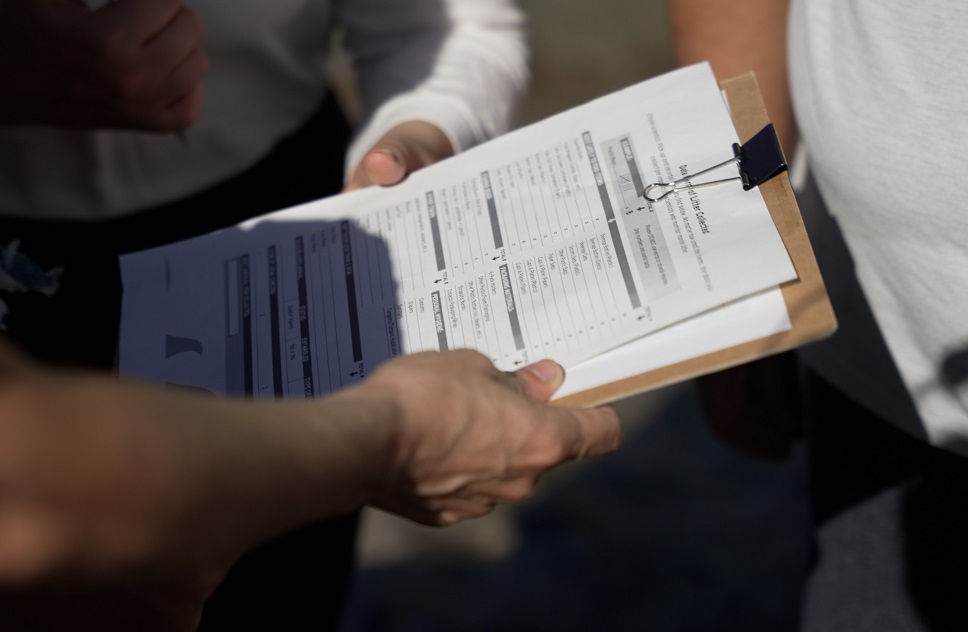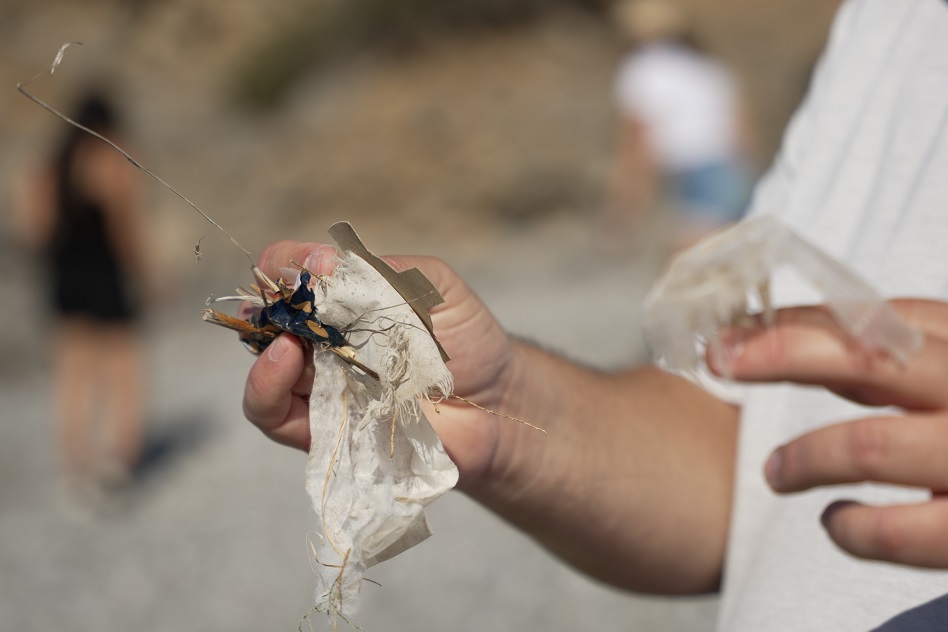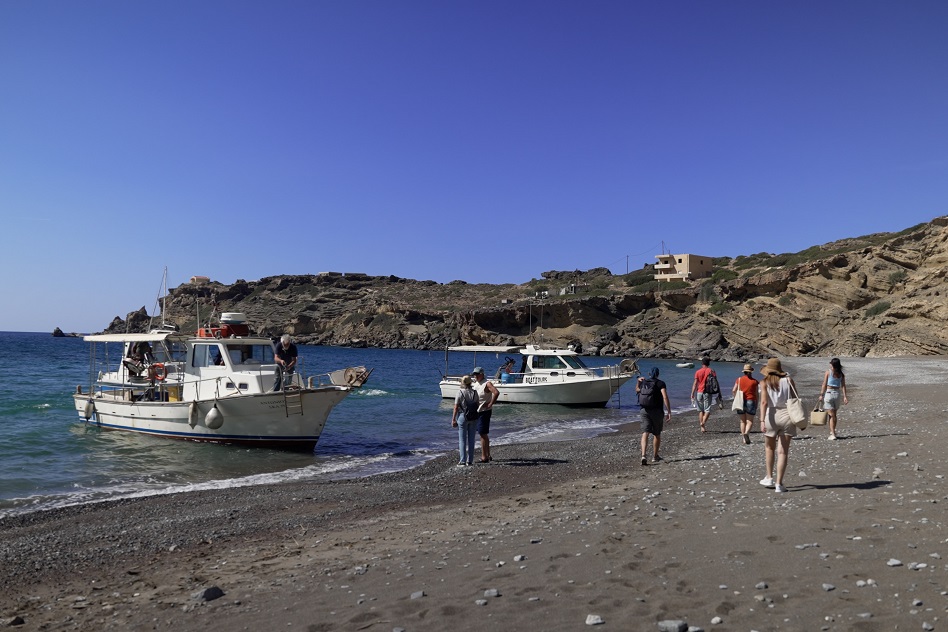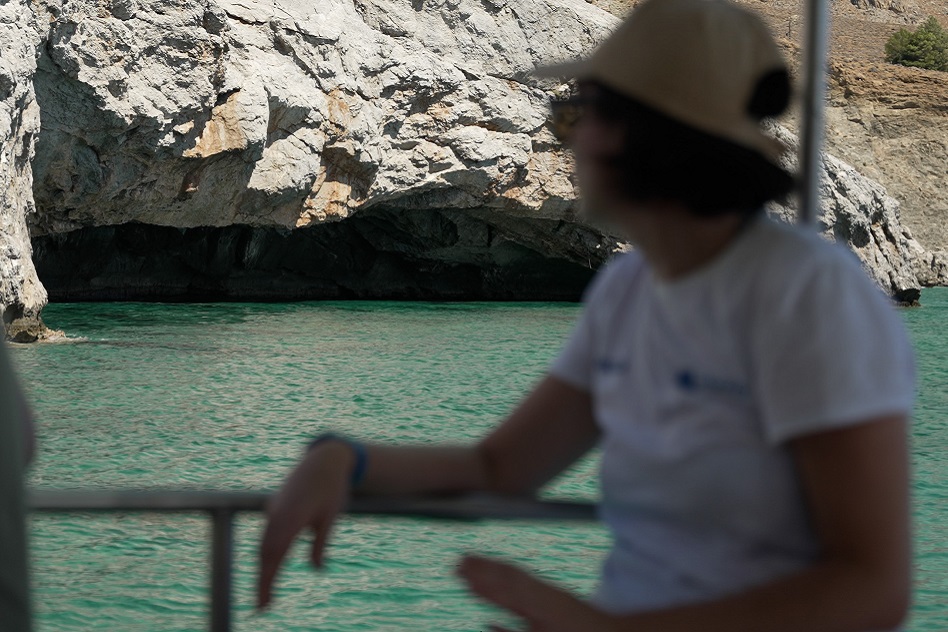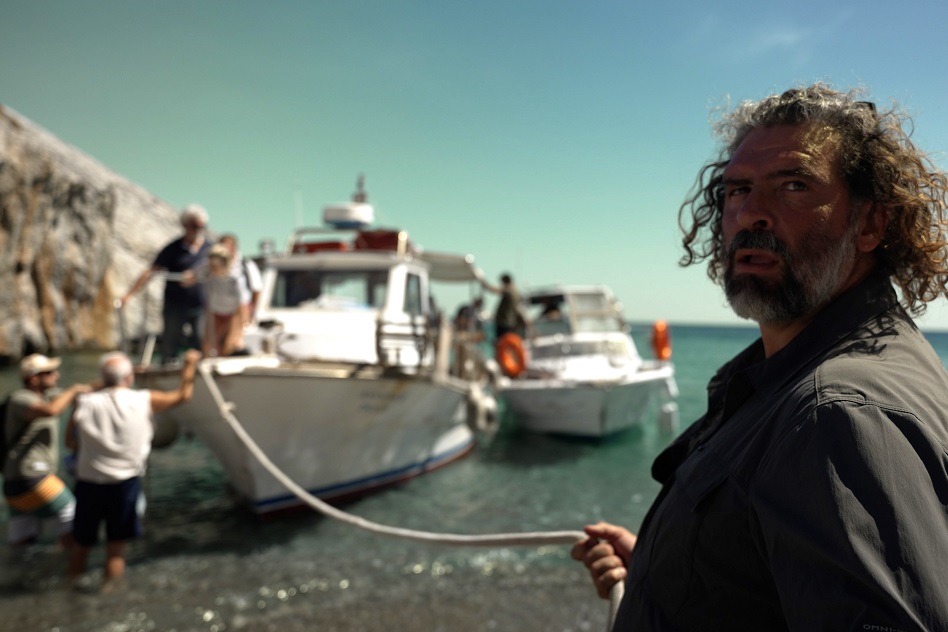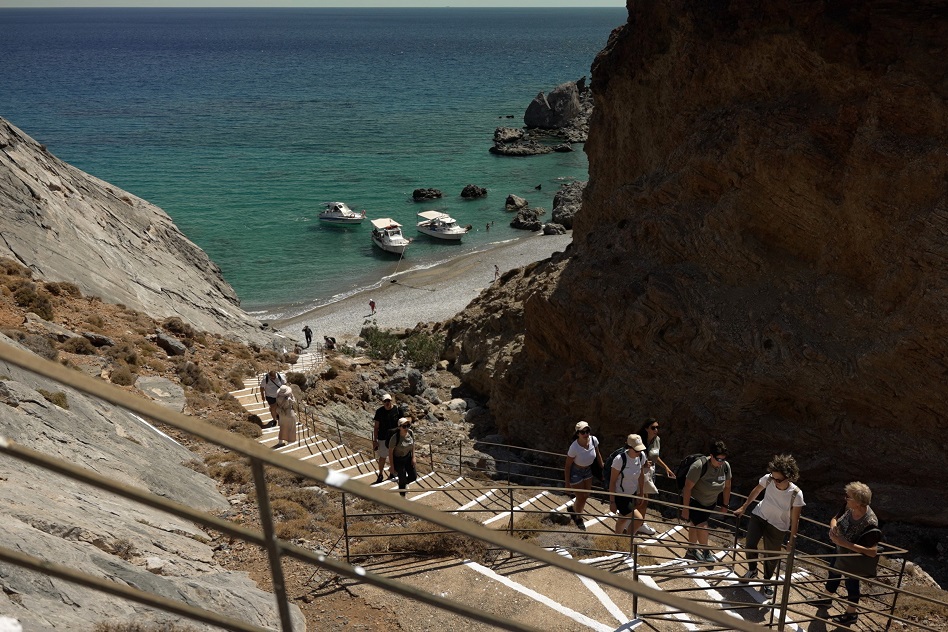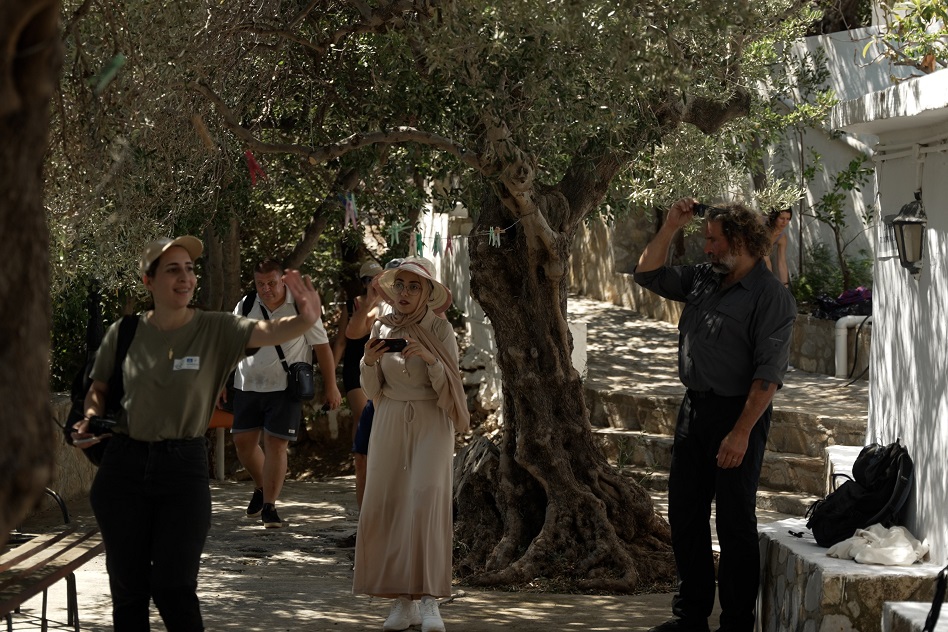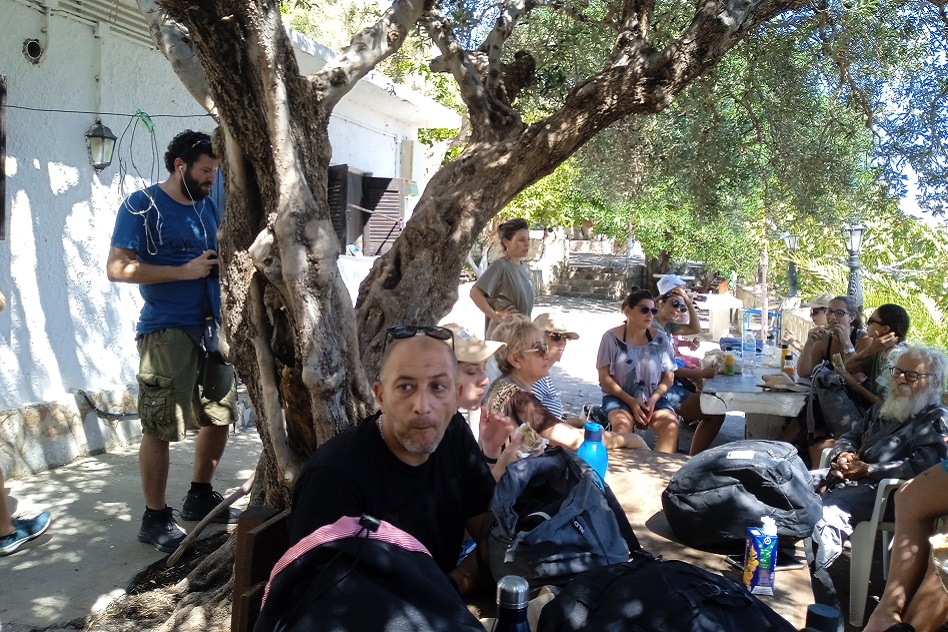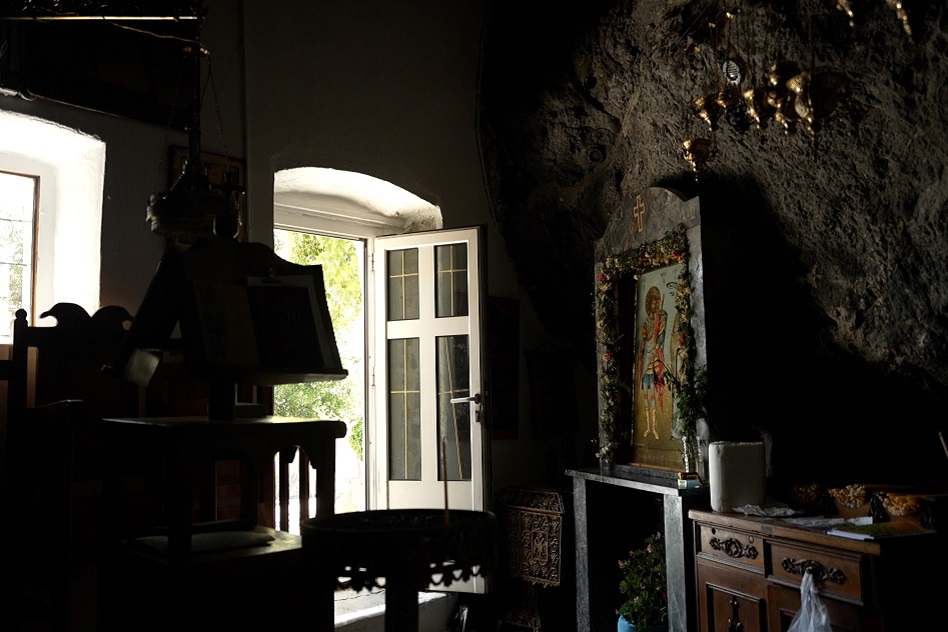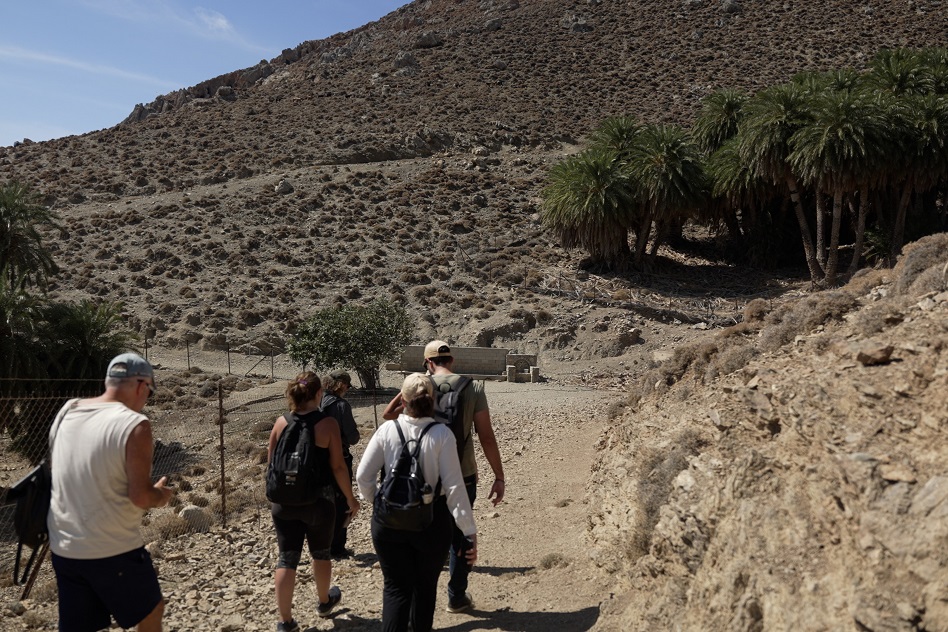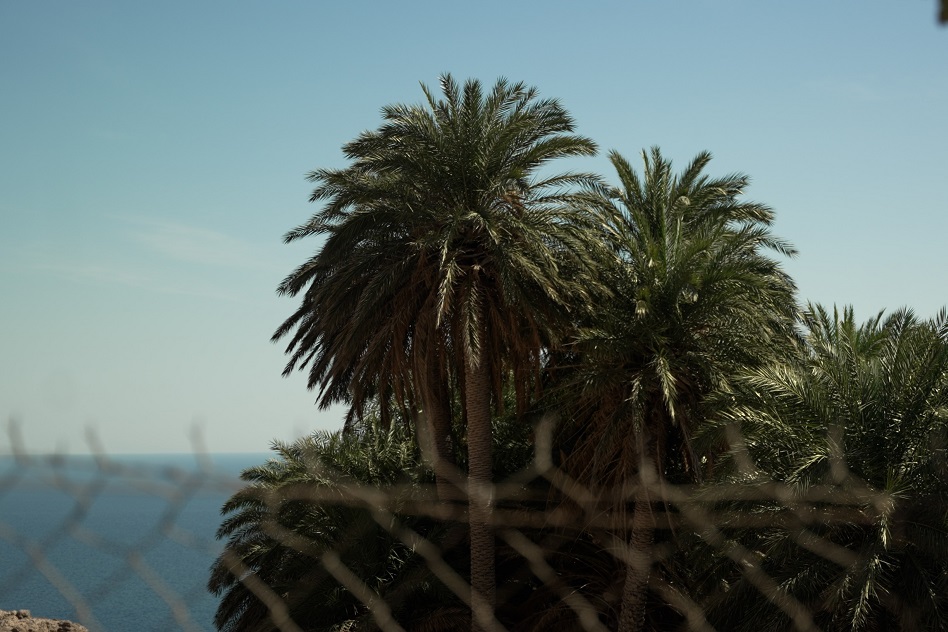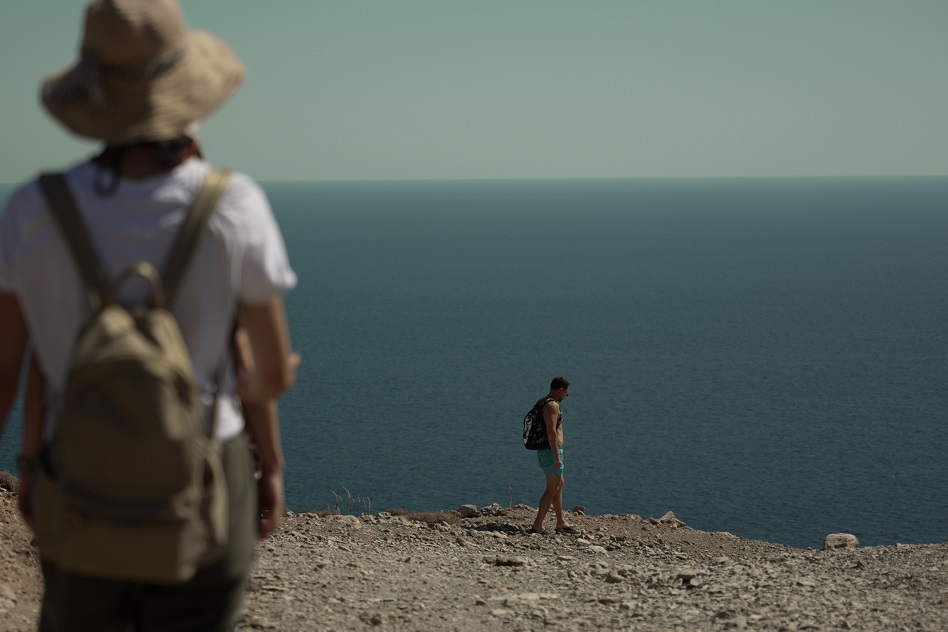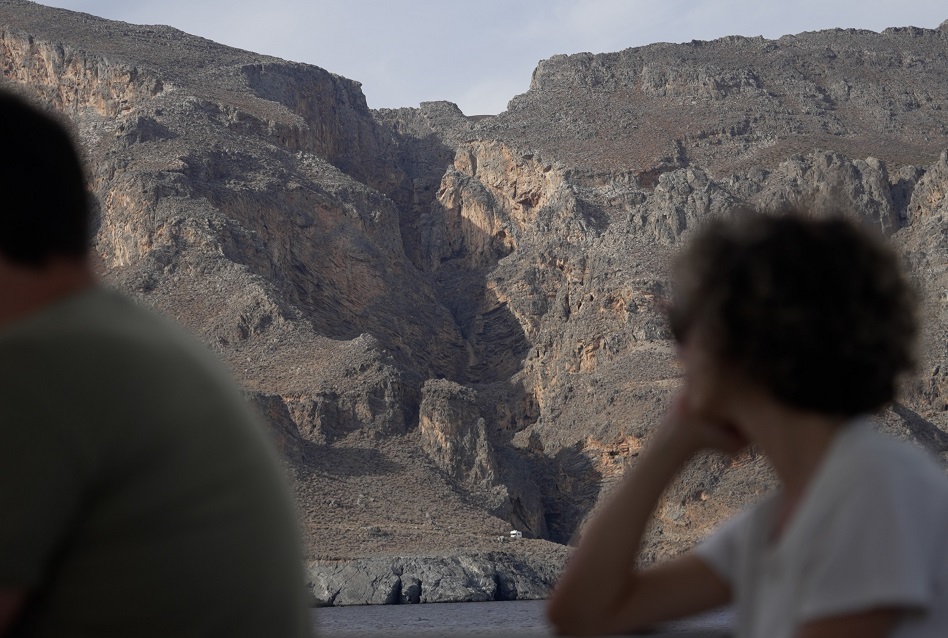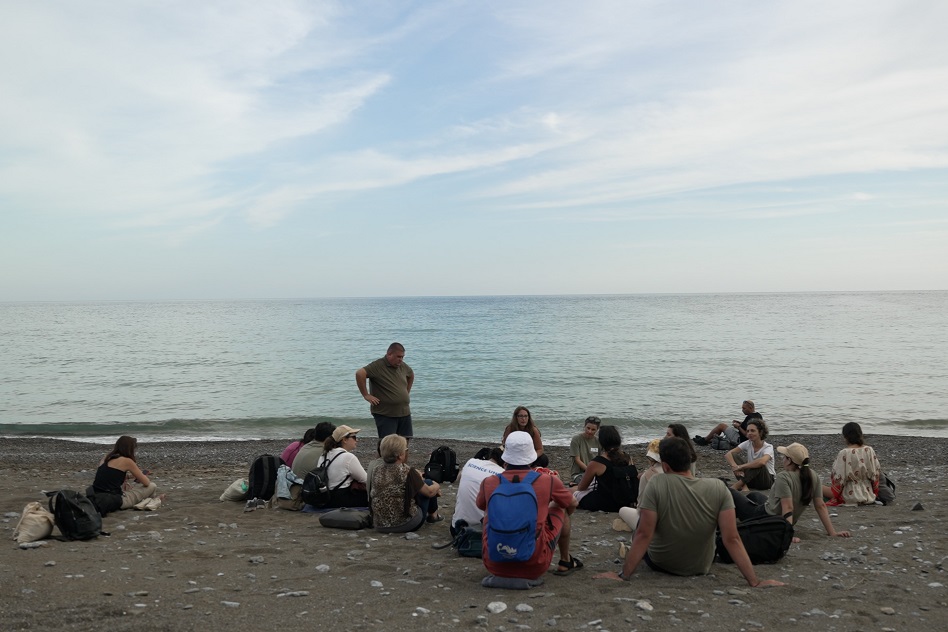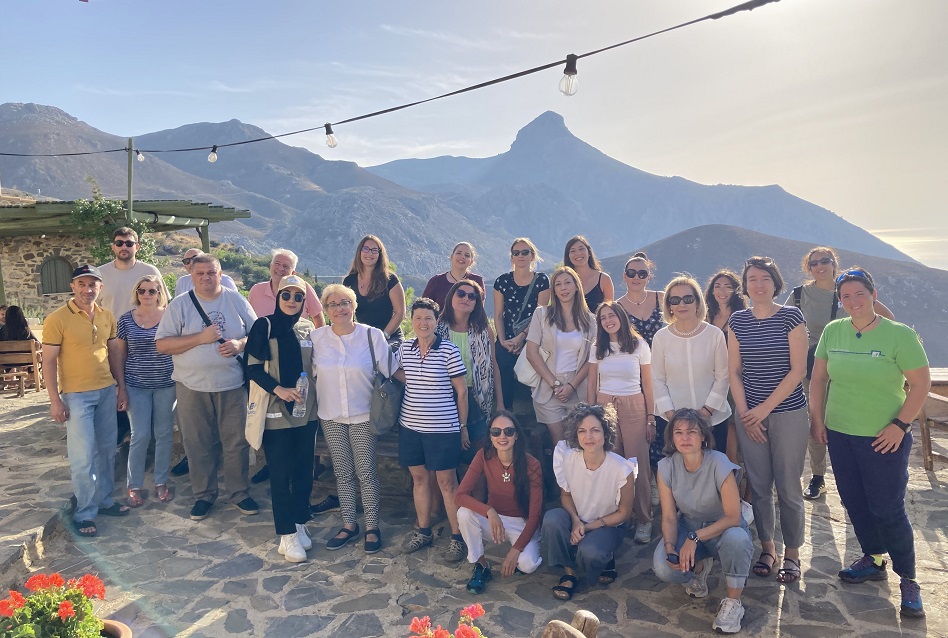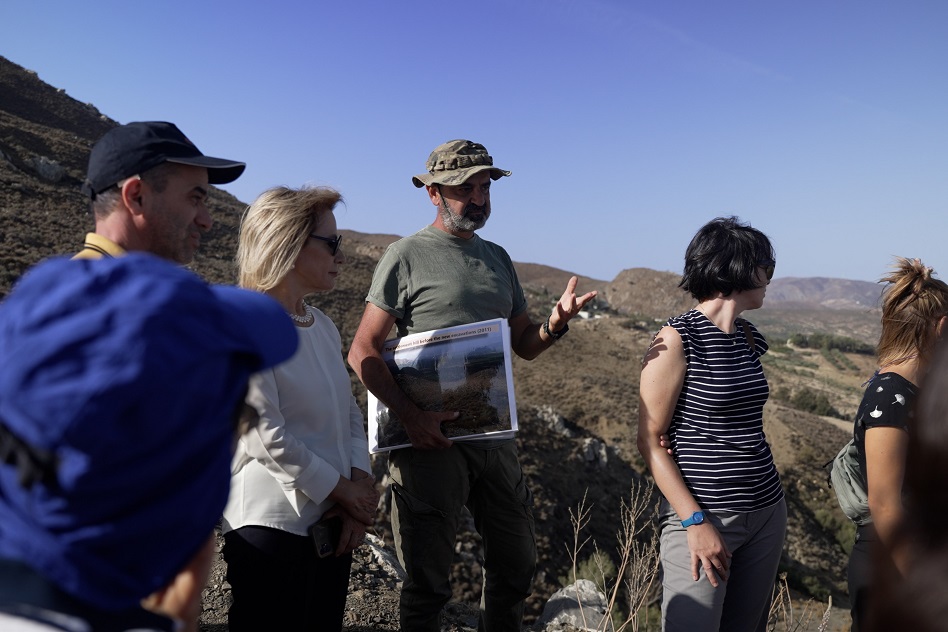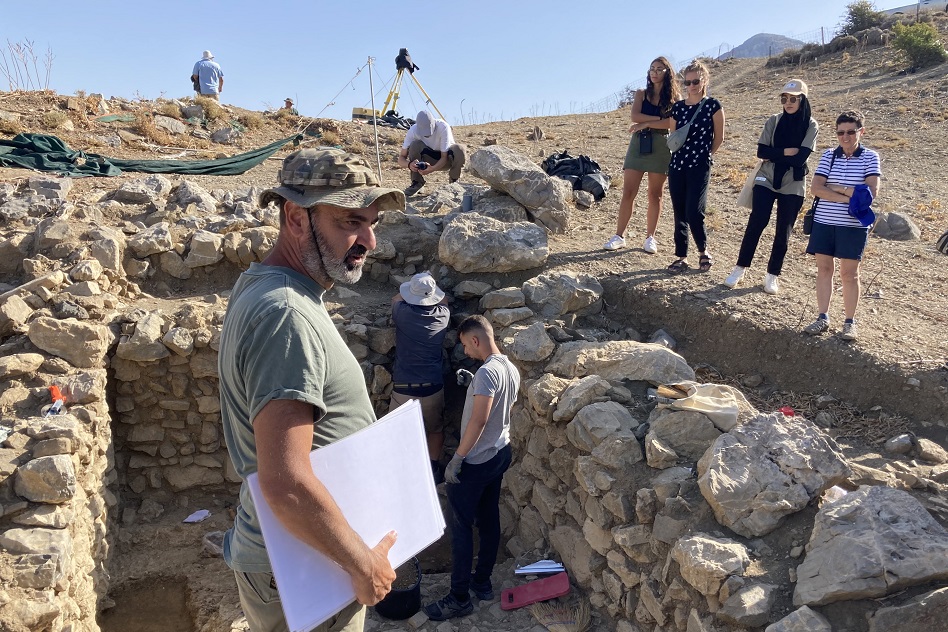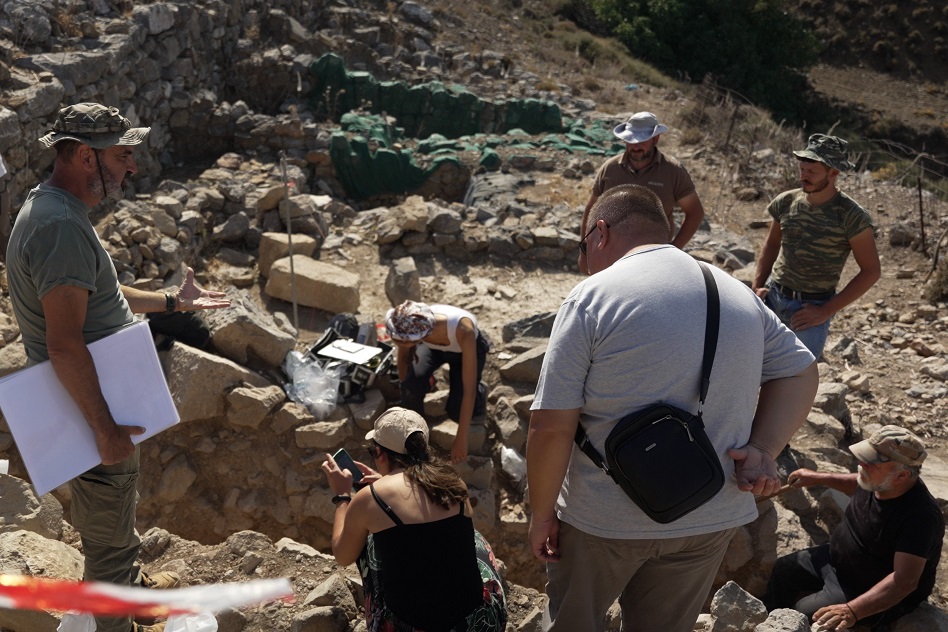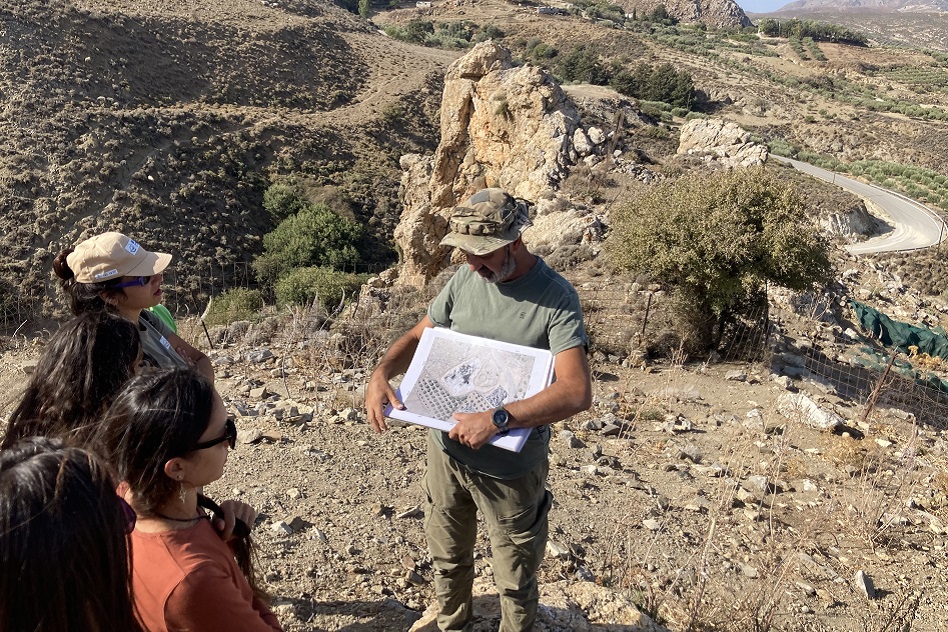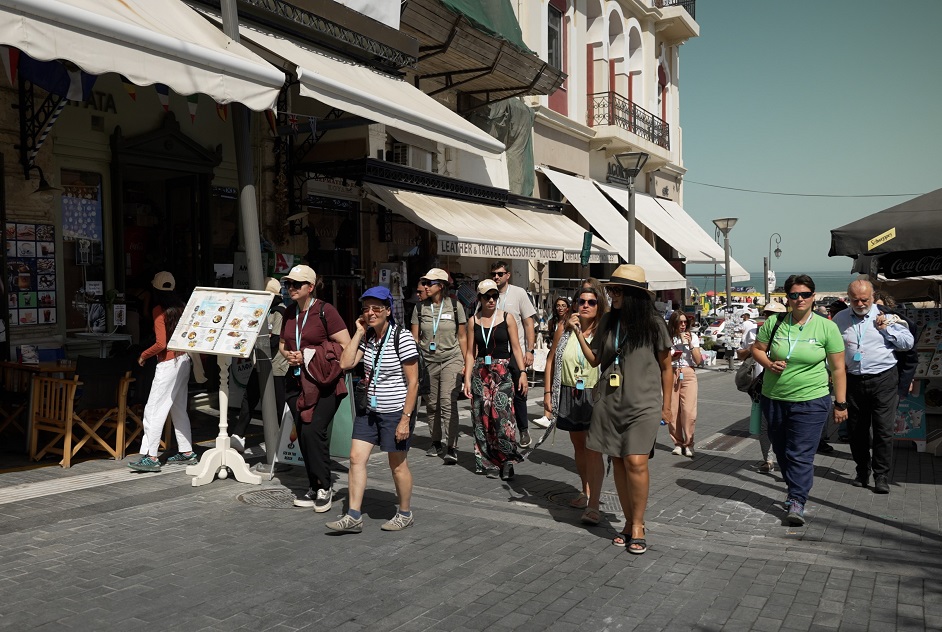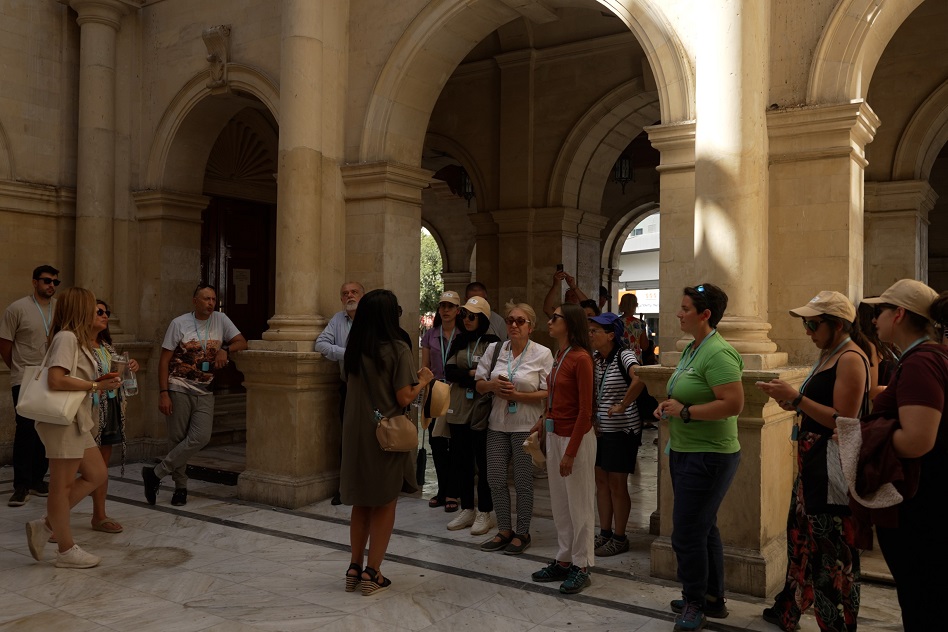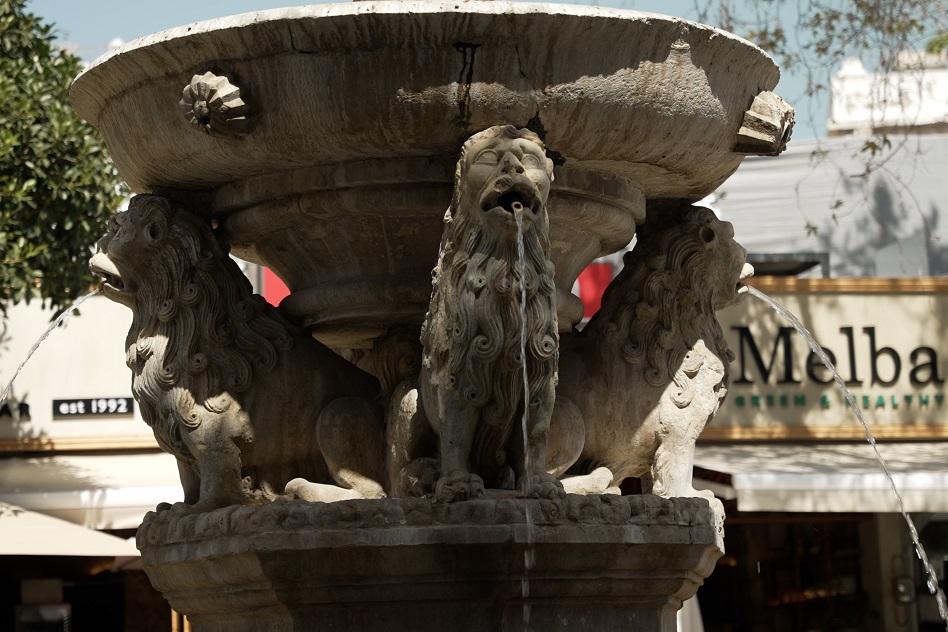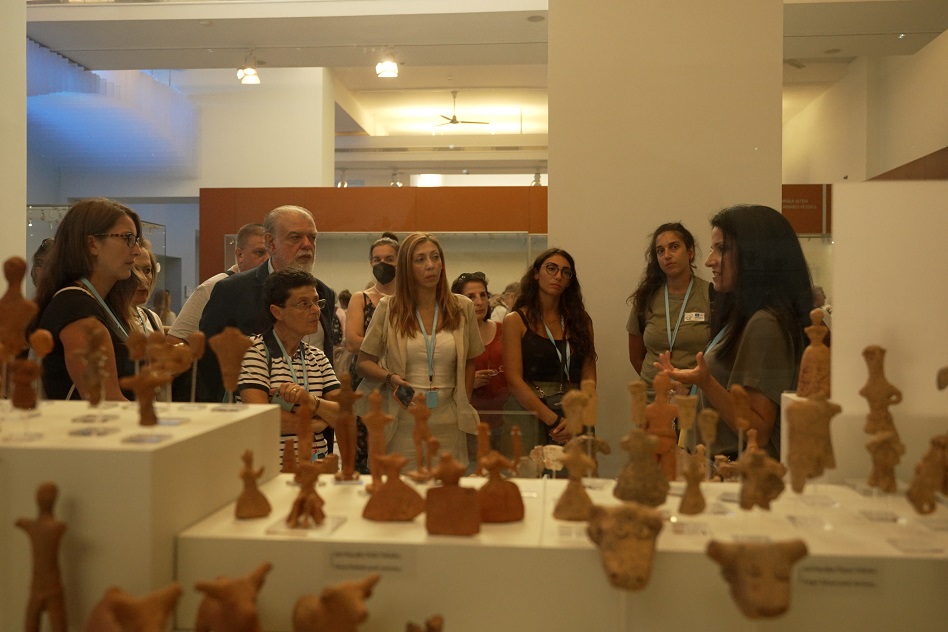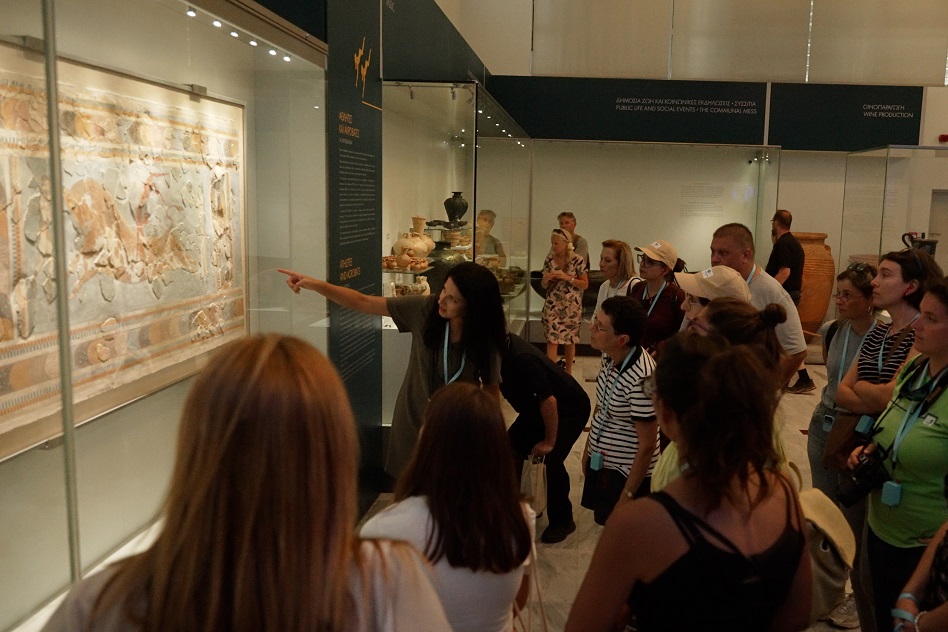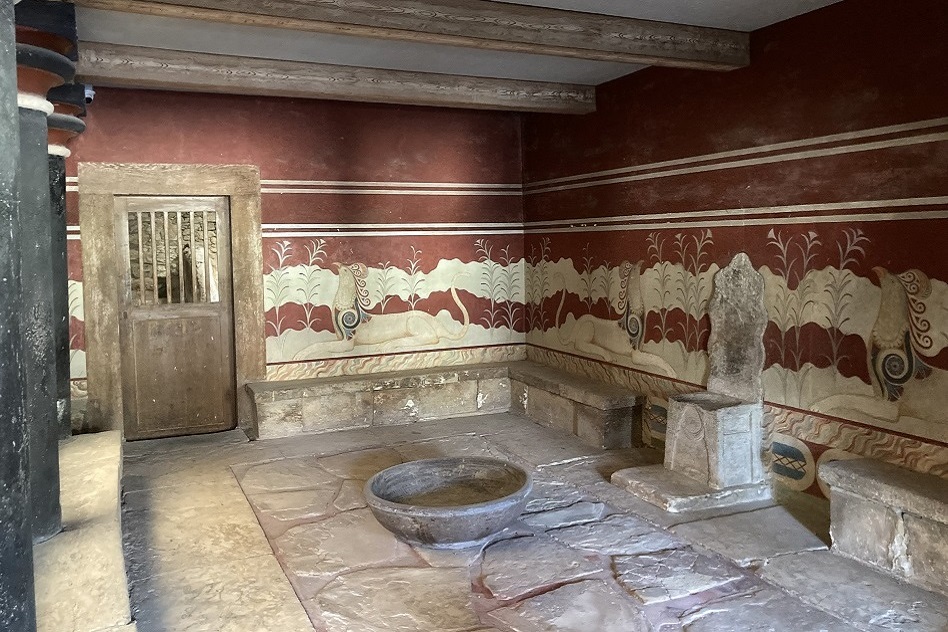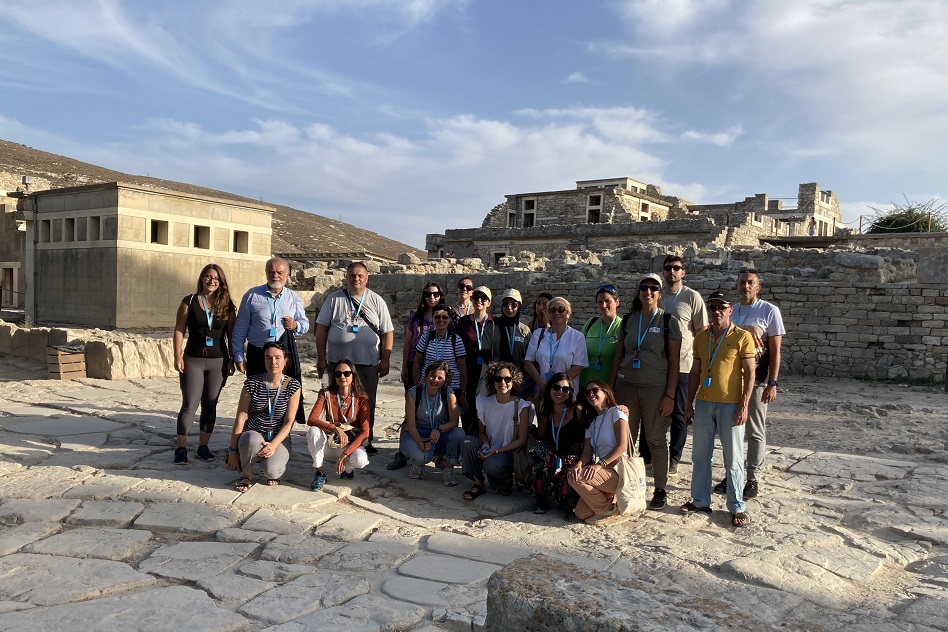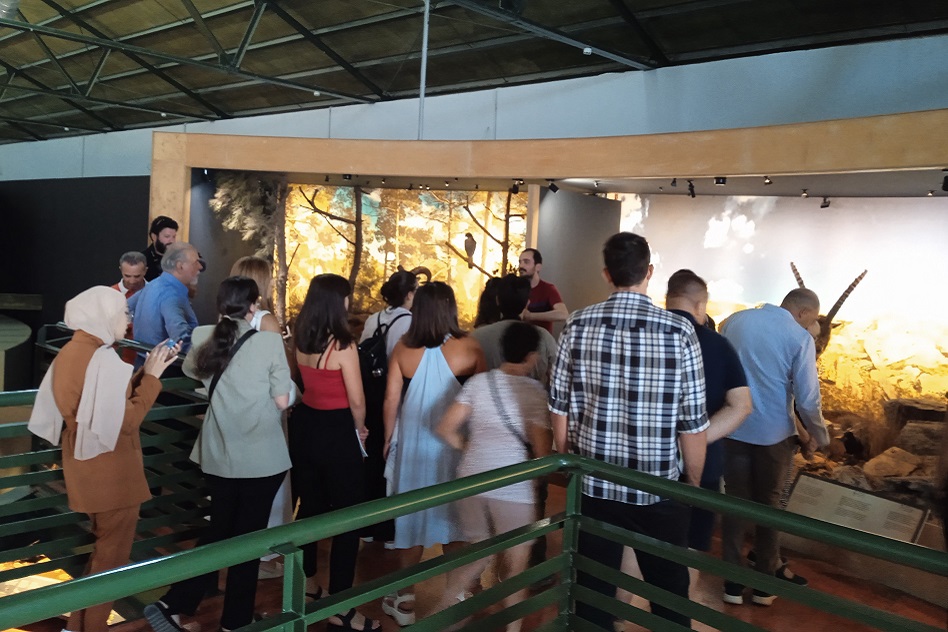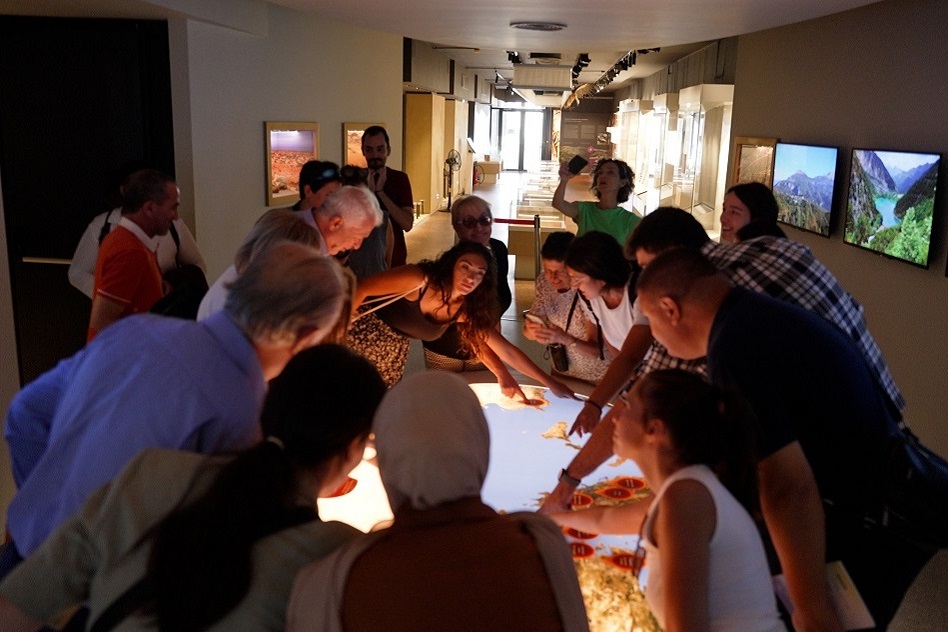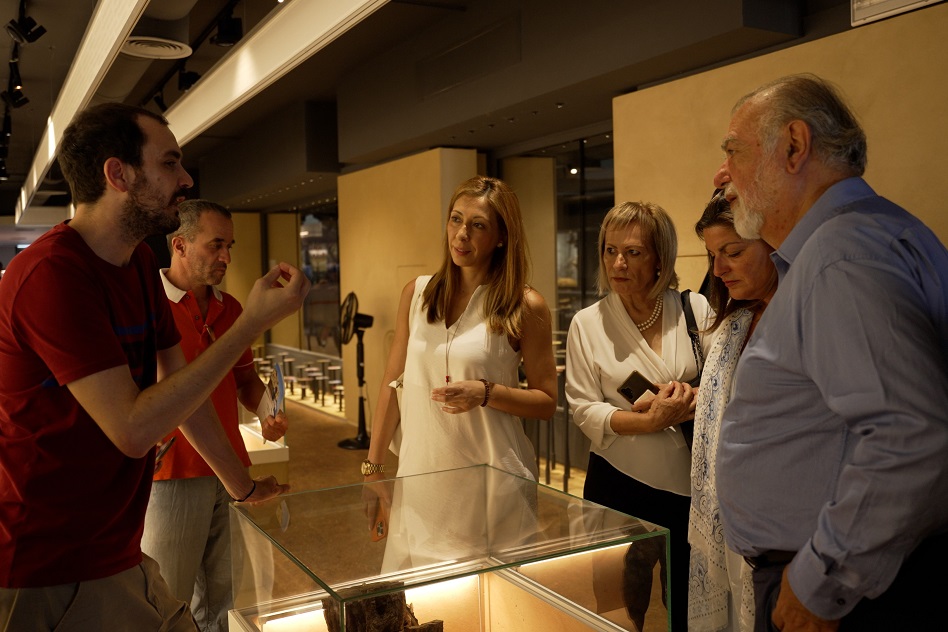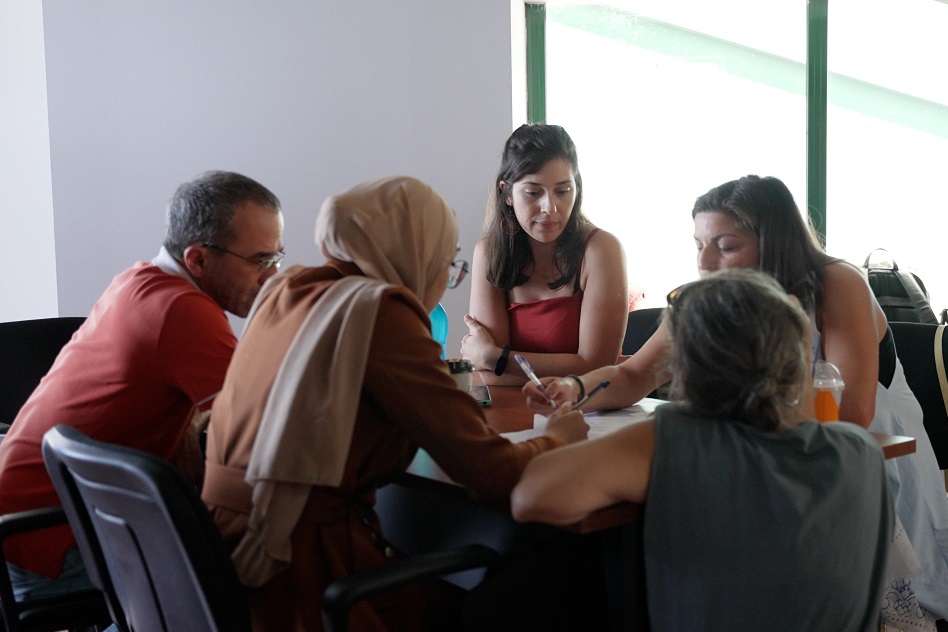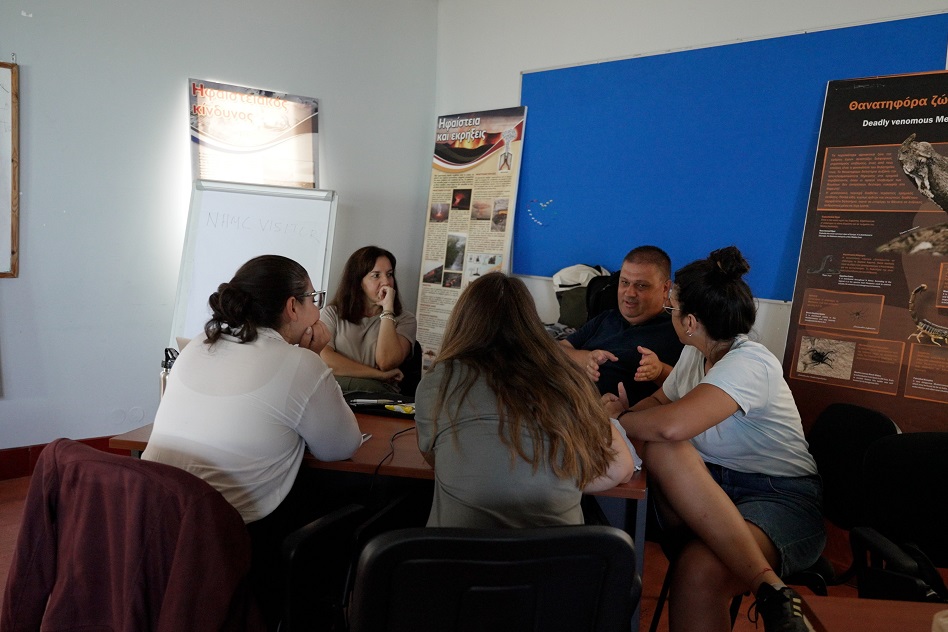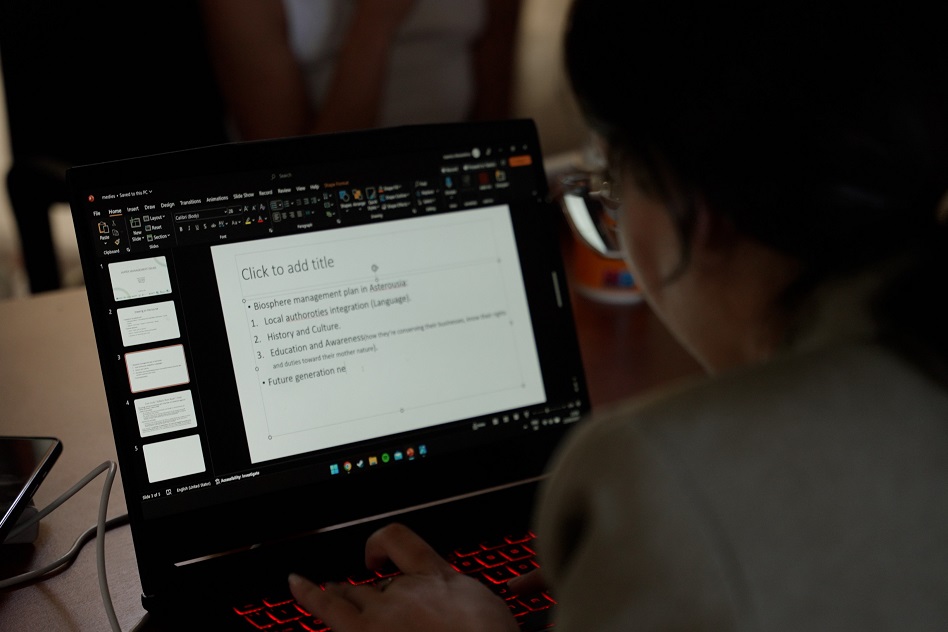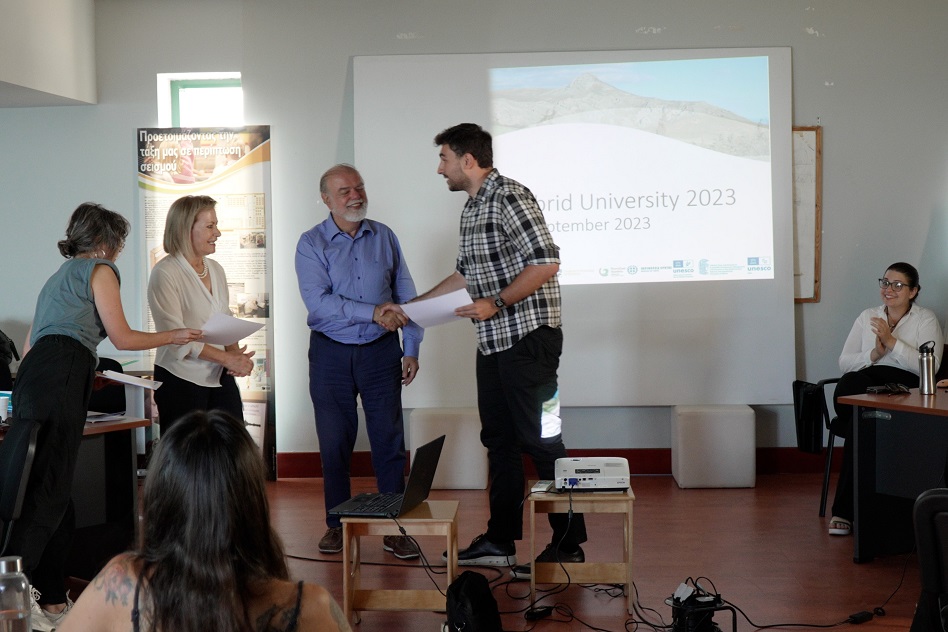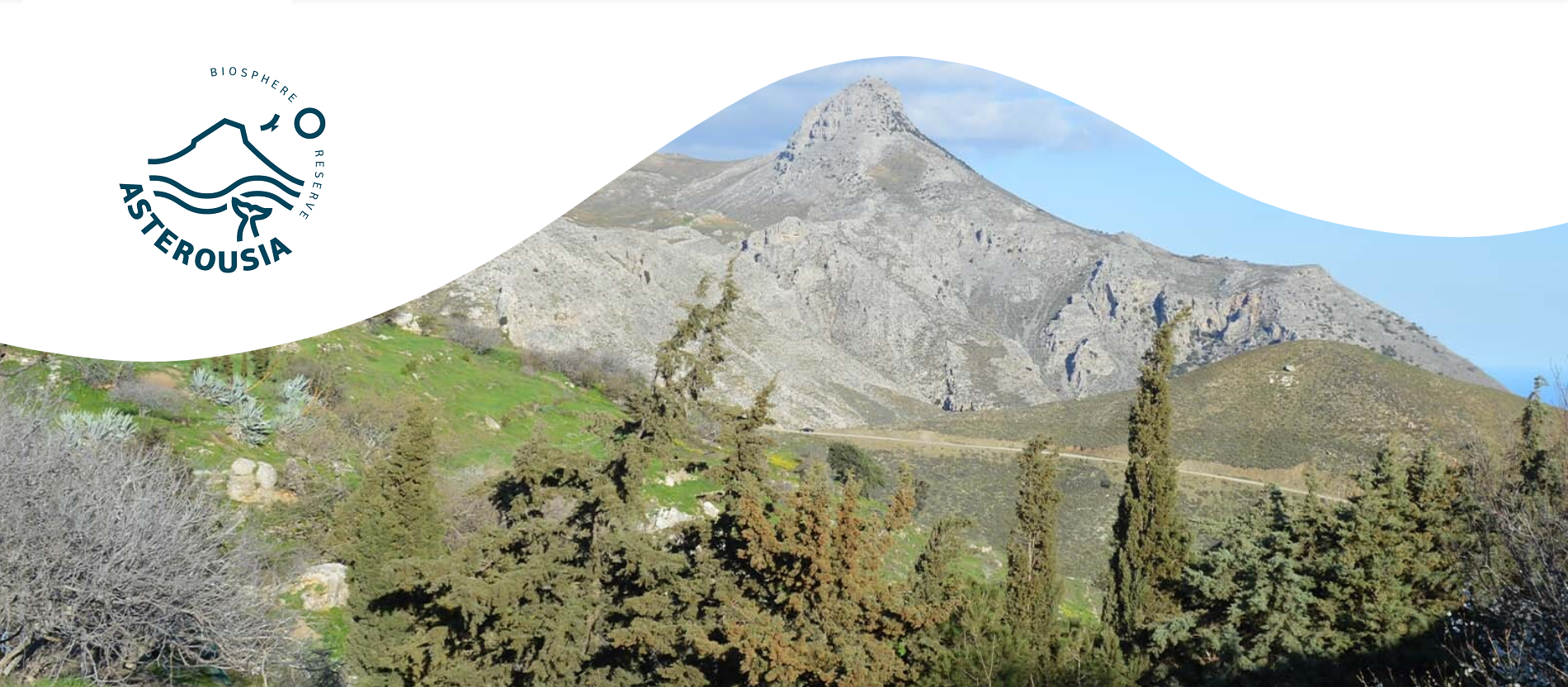
PHASE A
The weeklong event was organised in the Asterousia BR. It included presentations and lectures from experts on Integrated Management (Day 1) meetings with the local producers (Day 2), a landscape interpretation on the mesmerizing coast of Asterousia combined with a visit to the Monasteries and a beach litter monitoring activity (Day 3), a day devoted to water in culture (Day 4) as well as workshops and group-work sessions (mostly on Day 5). The key-note lectures and certain presentations of PHASE A are integrated in PHASE B.
Snapshots of PHASE A
Video teaser of PHASE A
Phase A – Group Work Outcomes
Key outcomes of group work that were based on the case studies shared by the participants and the lectures are summarized below in bullet points:
- The BRs in the Mediterranean seem to face similar challenges in varying degree of intensity: water scarcity, floods, invasive alien species; agricultural pollution; decrease of water quality (pollution) of freshwater bodies (rivers); illegal hunting, uncontrolled recreational activities, and desertification.
- Regulation and active management measures need to be in place to combat, to the extent possible the problem of excessive water demand (overexploitation in the summer when the demand peaks and damaging floods during rainy season, with fertile for soil water being lost.
- Long term monitoring of key parameters of the BR was identified as a need. For this purpose, platforms like the Open Data for the Mediterranean can be a useful tool.
- Structures and meaningful synergies with the private sector, whenever possible and appropriate, may facilitate the self-financing of the managing authority of the BR, which needs however to be supported by public funds as well.
- The management of the BR and the active involvement of various stakeholders can be seen also as an opportunity to bridge the identified “language gap” between politicians, scientists and the public.
- The study of the present and future prospects in water management in Asterousia BR and beyond may provide a useful lesson for the whole region of the Mediterranean.
- The ‘Local champions’ can be useful ambassadors of the BR, acting within and outside it. They can act as mediators of knowledge between experts and locals, by conveying the BR messages in a simple language. The locals are more willing to accept their experiences, as they are ‘one-of-them’ and through them they feel more that their voice and expertise is taken into account.
- The love of locals for their land and the strong social bonds amongst them was very evident in Asterousia BR and in Crete in general. This is depicted also in the high number of stakeholders that cooperate for the BR management and its projects. The feelings of pride and care of the people seem to be at the heart of an alive and operating BR.
- The restoration of ancient / old dry-stone walls, cisterns and other water systems is recommended for demonstration but also for water saving purposes.
- Making available an adequate number of public water-taps with spring water of good quality, especially in highly visited spots within the BR and beyond, may relieve, to a certain degree the pressure of water and plastic pollution that peaks in the summer due to bottled water consumption.
- The important role of citizen science and education at all levels and for all economic sectors was underlined, since there is already clear evidence foe appreciations and successful results.
- The protection of biodiversity in the wider area of the BR and the natural environment should be understood not only as the task for the relevant Ministries and authorities. It should be part of the polices of all Ministries and local authorities.
Specific Proposals for the Asterousia region (by prof. Scoullos)
In Asterousia, because of its mountainous character, pumping water to reach a certain altitude is extremely energy consuming. Still, we see that olive groves and vineyards in the region are irrigated (mostly relying on local wells). We are in a rather critical moment, where, also due to climate change, the annual precipitation seems to be not enough to recharge the aquifers. To support this system, we need to look into non-conventional water resources, including systematic collection and use of storm water, and use of treated wastewater for irrigation and desalination.
The water management in Asterousia should be based on 3 principles.
- Not disrupting the natural water cycle (i.e. not bringing water from other basins, and avoiding over pumping).
- Ensuring adequate water is available to support the local production, in order to keep the young people and families there.
- Ensuring that the quality of the water is maintained, esp. if we add desalination to the mix, for touristic installations etc.
In this direction, activities in the region that should be prioritized are:
- a reconstruction scheme for the terraces that retain soil and storm water and replenish aquifers.
- a planting scheme of carob trees, that have limited water needs. These may be cultivated also in public land, but maintained and harvested by the locals if the necessary amendments are made in relevant legislation.
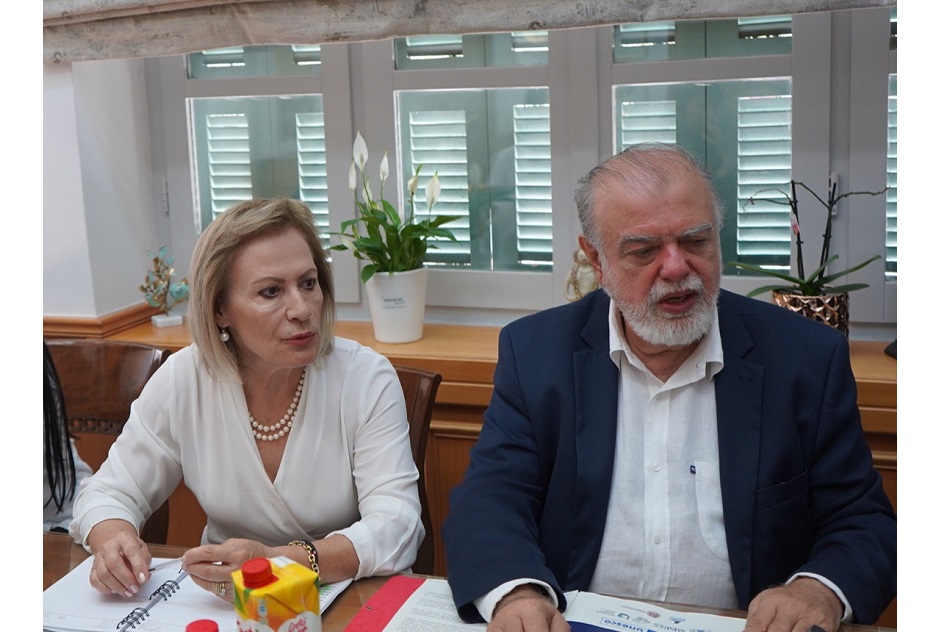
Mrs Vrentzou together with prof. Scoullos
Closing comment, by Mrs Vrentzou, Chairperson, Local Management Committee of the Asterousia BR
The proposal for the institutionalization of the Asterousia University on an annual basis is for us a bless. Through this visionary endeavor, we will have the opportunity to communicate the Asterousia BR to the whole world, to exchange good practices with other BRs and keep learning from each other, and to have a permanent collaboration and consultation with UNESCO and their MAB programme which serves a great purpose in safeguarding our environment, culture and heritage, all around the world.
Organisers
The main organisers & sponsors of the 2023 Hybrid University are:
- The UNESCO Regional Bureau for Science and Culture in Europe (Venice Office) (Link)
- Region of Crete (Link)
- Heraklion Development Agency (Link)
- Association for the Protection of Asterousia (Link)
- UNESCO Chair and Network on Sustainable Development Management and Education at the University of Athens (UoA)
- The Greek National Committee of the MAB/UNESCO Programme
- Mediterranean Information Office for Environment, Culture and Sustainable Development (MIO-ECSDE) through the MEdIES initiative (Link MIO-ECSDE, Link MEdIES)
- Global Water Partnership – Mediterranean (GWP-Med) (Link)
Other contributors: The Hybrid University will bring together a series of actors involved with freshwater or marine water management in and around the Asterousia BR, including:
- Natural History Museum of Crete
- HCMR Hellenic Centre for Marine Research
- The Oceanographic Institute and Aquarium
- Local Associations of professionals
